KEO News Wire
Mark Alexander lauds SARU rugby legends’ legacy
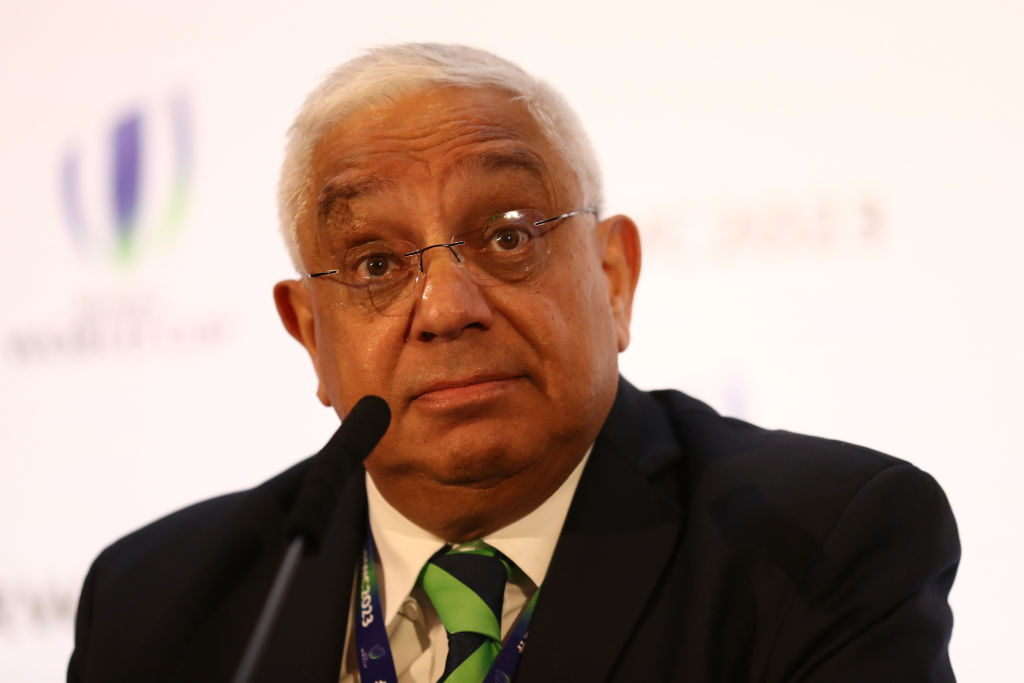
An emotionally charged Mark Alexander paid tribute to the history of the SARU legends denied an opportunity to showcase their skills to a global audience at the launch of a book honouring and acknowledging those heroes who fought injustice, prejudice and racial division during the Apartheid era. They are names and faces that must never be forgotten, writes Mark Keohane.
SA Rugby Magazine’s Simon Borchardt attended the lauch, appropriately in Cape Town’s Bo-Kaap, and he told me of the power of Alexander’s speech.
‘I wish I had recorded it,’ said Borchardt. ‘It was a very interesting and powerful speech from Mark Alexander. At the end of it he properly teared up, which I have never seen him do in the past.’
Alexander, who has been the president of SA Rugby since 2016, has been the heart beat and pulse of SA Rugby’s revival in transforming the off-field ills of 2016, when sponsors walked away, investors were scarce and the government was at odds with the sport’s leadership for a lack of custodianship in the transformation of the game.
Alexander, a fiery hooker in his early playing days for the non-racial Transvaal, had his career ended prematurely because of a knee injury, but he quickly transferred that on-field fire in the belly to rugby and sports administration.
Alexander, post the low of South Africa’s defeat against Italy in 2016 and the four Bok wins in 12 in 2017, embarked on the most gruelling resurrection of the Springboks and SA Rugby as a brand to corporate South Africa. The result is that in 2025 South Africa are back to back Rugby World Cup champions, under 20 world champions, 7s world champions, undefeated in the most recent under 18 internationals against France, England and Ireland, and have a competitive team at the women’s World Cup, hopefully of making the quarter-finals of the first time.
But it is the memory of the fight pre-unity that evokes such emotion in Alexander because he was at the heart of that fight to restore balance and normality and equal opportunity to every rugby player in South Africa.
Historian Andre Odendaal described ‘Scrumming Against All Odds’ as a remarkable collection of SARU heroes finally getting their just acknowledgement. The book is edited by Omar Esau.
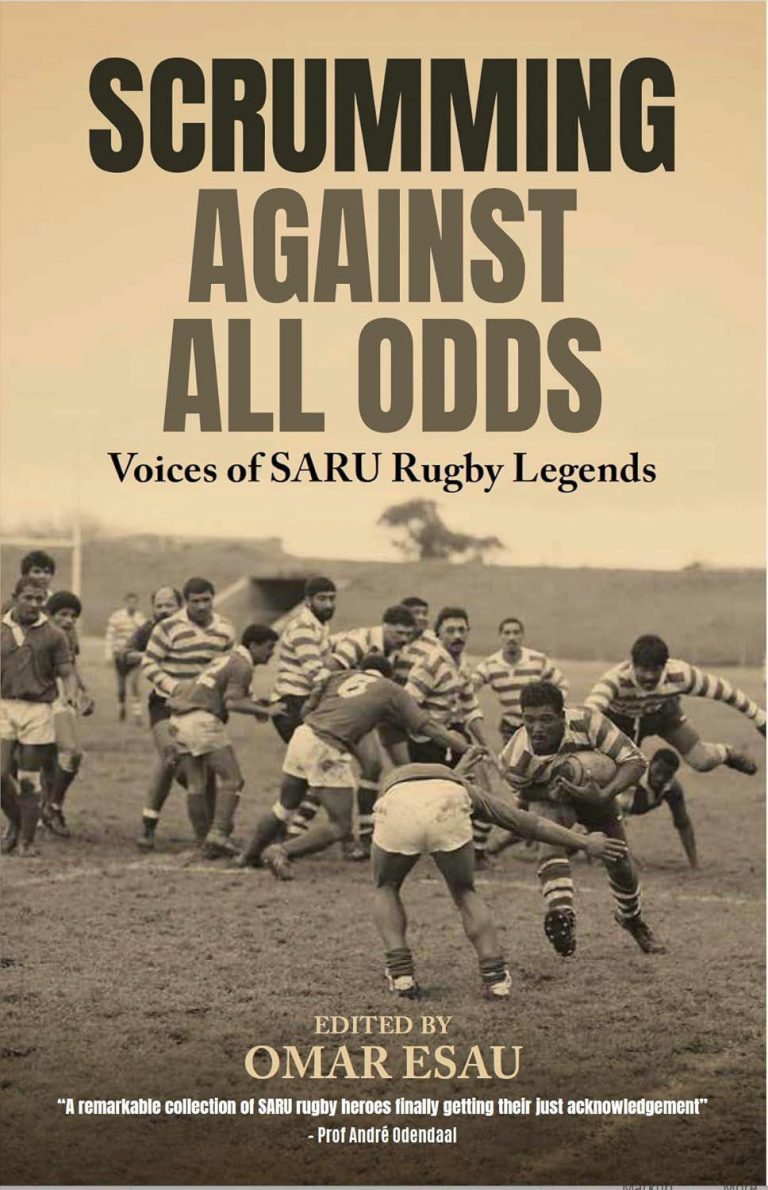 I contacted Alexander and asked him if he could send me his speech, to record it online, even if the power of the delivery in person could not be replicated.
I contacted Alexander and asked him if he could send me his speech, to record it online, even if the power of the delivery in person could not be replicated.
He obliged.
‘Ladies and Gentlemen,
Friends of rugby, custodians of history and champions of truth— It is both a privilege and a solemn honour to stand before you today at the launch of Scrumming Against All Odds—a work that does more than chronicle the game. It bears witness to a struggle. It gives voice to those who were silenced. And it reminds us that rugby in South Africa was never just about sport—it was about survival, dignity and defiance.
‘This book is not merely a collection of stories. It is a reckoning with our past. A past in which rugby was used to divide, to exclude and to reinforce a system that denied countless South Africans the right to represent their country—not because they lacked talent, but because of the colour of their skin.
‘Yet, in the face of that injustice, communities across this nation refused to let the game die. They played on dusty fields, with torn jerseys and borrowed boots. They coached without pay, organised fixtures without resources and built clubs that became sanctuaries of hope.
‘They scrummed not for glory, but for identity. They tackled not for trophies, but for recognition. And they passed the ball forward—not just in play, but in purpose.
‘These were the men and women who kept rugby alive in the townships, in the rural heartlands and in the forgotten corners of our cities. They sacrificed careers, endured humiliation and faced threats—yet they never abandoned the game. Their love for rugby was unconditional and their commitment to justice was unwavering.
‘And when the walls of apartheid finally fell, it was rugby—more than any other force—that helped unify this country. On that unforgettable day in 1995, when a Springbok jersey became a symbol of reconciliation, we saw what this game could mean to a fractured nation. Rugby gave us a shared language, a common dream and a reason to believe in each other again.
‘But we must also acknowledge that the injustice of apartheid extended beyond our borders. The Māori All Blacks—a team rich in heritage and pride—were denied the right to tour South Africa for decades, simply because they were not white. That exclusion was a stain on our history and it is long overdue that we confront it with humility and remorse.
‘I am pleased to share that the South African Rugby Union is currently in discussion with our counterparts in New Zealand to host the Māori All Blacks for two matches on South African soil next season. These games will not only be a celebration of rugby excellence—they will be a moment of reckoning, of recognition and of reconciliation. We intend to use this occasion to formally
apologise for the discrimination they endured and to honour those who were excluded and marginalised here at home.
Scrumming Against All Odds captures this spirit. It reminds us that the soul of South African rugby was forged not only in stadiums, but in struggle.
It challenges us to remember that transformation is not a destination—it is a journey. And it calls on all of us, especially those in leadership, to ensure that the sacrifices of the past are honoured through action, inclusion and accountability.
‘As President of the South African Rugby Union, I pledge that we will continue to confront our history with honesty and shape our future with courage. We owe it to those who scrummed against all odds. We owe it to the next generation who must never be told that their dreams are limited by where they come from or what they look like.
‘Let this book be a mirror, a map and a mandate. A mirror to reflect where we’ve been. A map to guide where we must go. And a mandate to never forget the price paid by those who played the game when the game refused to play fair.
‘To the authors, contributors and custodians of this powerful work—thank you. You have not just written a book. You have preserved a legacy.
Thank you.’
International Rugby
Bok Damian de Allende is the best No 12 in the world
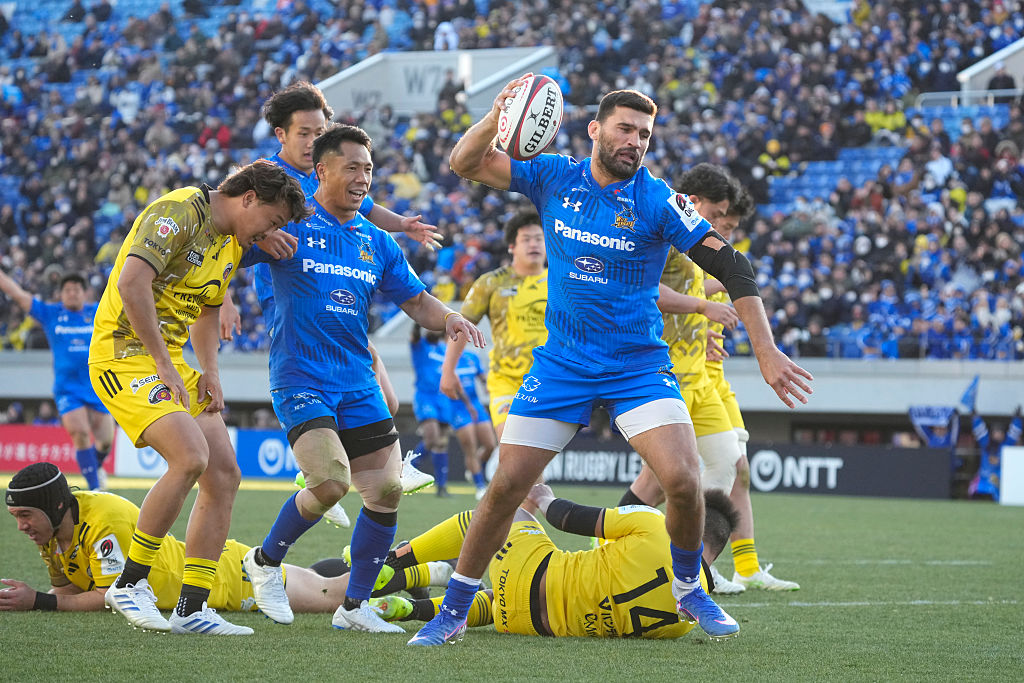
Springboks and Wild Knights Damian de Allende continues to set the standards among No 12s in world rugby. He is the best – and has been for some time.
In the Keo & Zels show earlier this week, there was agreement that De Allende remains the standout No 12 in the game.
Keo: Damian de Allende has done it all. Two World Cups. Rugby Championships. Outstanding for Munster in the URC and Investec Champions Cup. A superstar in Japan. A force for the Stormers and Western Province.
Yet when the “best No 12 in the world” debate starts, his name is often an afterthought.
Ireland’s Stu McCloskey has had a strong Six Nations and suddenly some commentators are calling him the benchmark. That’s recency bias. De Allende has been the benchmark for a decade.
He is the glue in the Springbok midfield. When he plays, they are a different side. When he doesn’t, you feel it. Sonny Bill Williams said last season that the most undervalued piece of the South African World Cup puzzle is Damian de Allende. He’s right.
De Allende has strength in contact, a complete passing game and a rugby IQ that the public underrates but coaches don’t. Tony Brown rates him the best passer in the Bok set-up.
The move to Japan extended his career. League One is improving every season, but it’s not the weekly collision of the URC or Top 14. It has preserved him and I believe he has another World Cup in him.
If we’re picking a No 12 tomorrow? I take him. Every time. He is the best No 12 in the world.
ALL BLACKS GREATS RAVE ABOUT DE ALLENDE
Zels:
That’s the difference between media noise and player reality.
In player circles, “Doogz” gets huge respect. It’s the same story as Franco Mostert. At the Lions people asked what he actually did. Then he became a Bok and suddenly everyone understood the work rate and detail.
De Allende does the heavy lifting. He wins collisions. He cleans up. He organises. He makes the right decision more often than not. Players and coaches see it immediately.
In his prime? For me, absolutely – he’s the best 12 in world rugby.
RECALL: HOW RASSIE REINVENTED DE ALLENDE IN 2019
Last weekend he played his 50th match for the Wild Knights in Japan – another reminder of his consistency and professionalism. Whether it was Milnerton High in Cape Town, a World Cup final with the Springboks, Munster on a European night, or League One in Japan, the standard never drops.
ALL BLACKS MIDFIELD MASTER SONNY BILL WILLIAMS GIVES DOOGZ HIS DUES
View this post on Instagram
KEO News Wire
South Africa’s State of Origin – our Schools system works
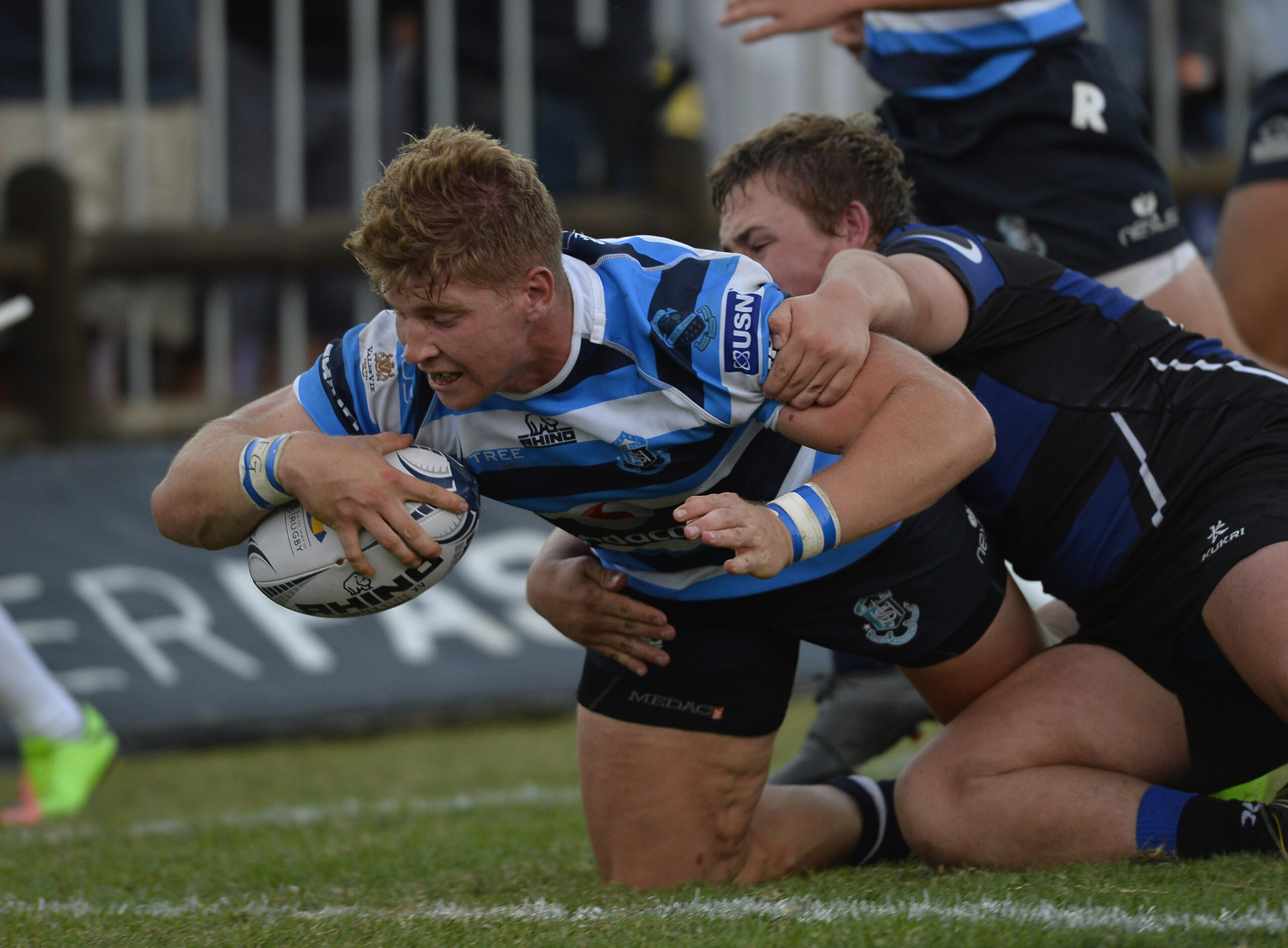
The elite layer is concentrated but across the Bulls, Lions, Sharks and Stormers there are 64 schools represented. That tells you the base of the South African game is broad and that the state of Origin on this celebratory United Rugby Championship Origin weekend is healthy.
The natural feeder system is in Paarl and Stellenbosch. It has always been the case with Paarl Boys High, Paarl Gim, Paul Roos and Boland Landbou producing elite professional players with each matric cycle.
Grey College, in the past 30 years, has owned the title of a Springboks and professional rugby player factory more than any other school in the country. Others, like Boshaai, Gim and Paul Roos are always present, but over this period Grey College has produced the greatest number.
In this URC season, Grey College and Boshaai share the top spot of providing 18 players, split across all four South African URC clubs.
Krugersdorp’s Monument (Lions) and Bishops (Stormers) are a celebration of home grown talent graduating from schoolboy to professional rugby without having to relocate, while the traditional rugby powerhouses in Kwazulu-Natal (Glenwood, Hilton, Westville and Maritzburg College) continue to make a statement that local is lekker in KZN.
The Bulls, of the four SA clubs, have the most extensive recruitment drive, and have over the years consistently been leaders in securing the most sought after talent, be it out of school or at a later stage.
Bloemfontein, by way of Grey College, and Paarl, are greater feeders for the Bulls, who have not relied exclusively on the Schools Big Five. Many a player from local schools has proven good enough to be contracted.
SA URC ORIGIN – THE SCHOOLS
18 Players
-
Grey College
-
Paarl Boys’ High
12 Players
-
Paul Roos Gymnasium
10 Players
-
Paarl Gimnasium
9 Players
-
Hoërskool Monument
8 Players
-
Glenwood High School
-
Bishops (Diocesan College)
5 Players
-
Westville Boys’ High School
-
Maritzburg College
4 Players
-
Afrikaanse Hoër Seunskool (Affies)
-
Hilton College
3 Players
-
Northcliff High School
-
King Edward VII School (KES)
2 Players
-
St Albans College
-
Hoër Landbouskool Boland
-
Hoërskool Garsfontein
-
Hoër Landbouskool Oakdale
-
Michaelhouse
-
Jeppe High School for Boys
-
Potchefstroom Gimnasium
1 Player Each
-
St Stithians
-
Bersig
-
Hudson Park
-
Linden
-
SACS
-
Stellenberg
-
Transvalia
-
Frikkie Meyer
-
Fichardtpark
-
Graeme College
-
Ben Vorster
-
EG Jansen
-
St Andrew’s College (Makhanda)
-
Dale College
-
HTS Middelburg
-
Durban High School (DHS)
-
Hoërskool Klerksdorp
-
Hoërskool Tygerberg
-
Huguenot High School
-
Grey High School
-
Jim Mvabaza Senior Secondary
-
Piet Retief High School
-
Churchill Boys High School
-
HTS Louis Botha
-
Queens College
-
Hoërskool Oos-Moot
-
Diamantveld
-
Wonderboom
-
Outeniqua High School
-
Hoërskool Eldoraigne
-
Northwood
-
St John’s College
-
Rondebosch Boys’ High
-
Wynberg Boys’ High
-
Hoërskool Pietersburg
-
Welkom Gimnasium
-
Hoërskool Brandwag
-
Hermanus High School
-
Hoërskool Riebeeckstad
-
Klein Nederburg
-
Hoërskool Standerton
-
Total schools represented: 64
-
2 schools with 18 players
-
1 school with 12
-
1 school with 10
-
1 school with 9
-
2 schools with 8
-
2 schools with 5
-
2 schools with 4
-
2 schools with 3
-
7 schools with 2
-
42 schools with 1
International Rugby
URC: Julius stars but the Lions roar loudest at Ellis Park
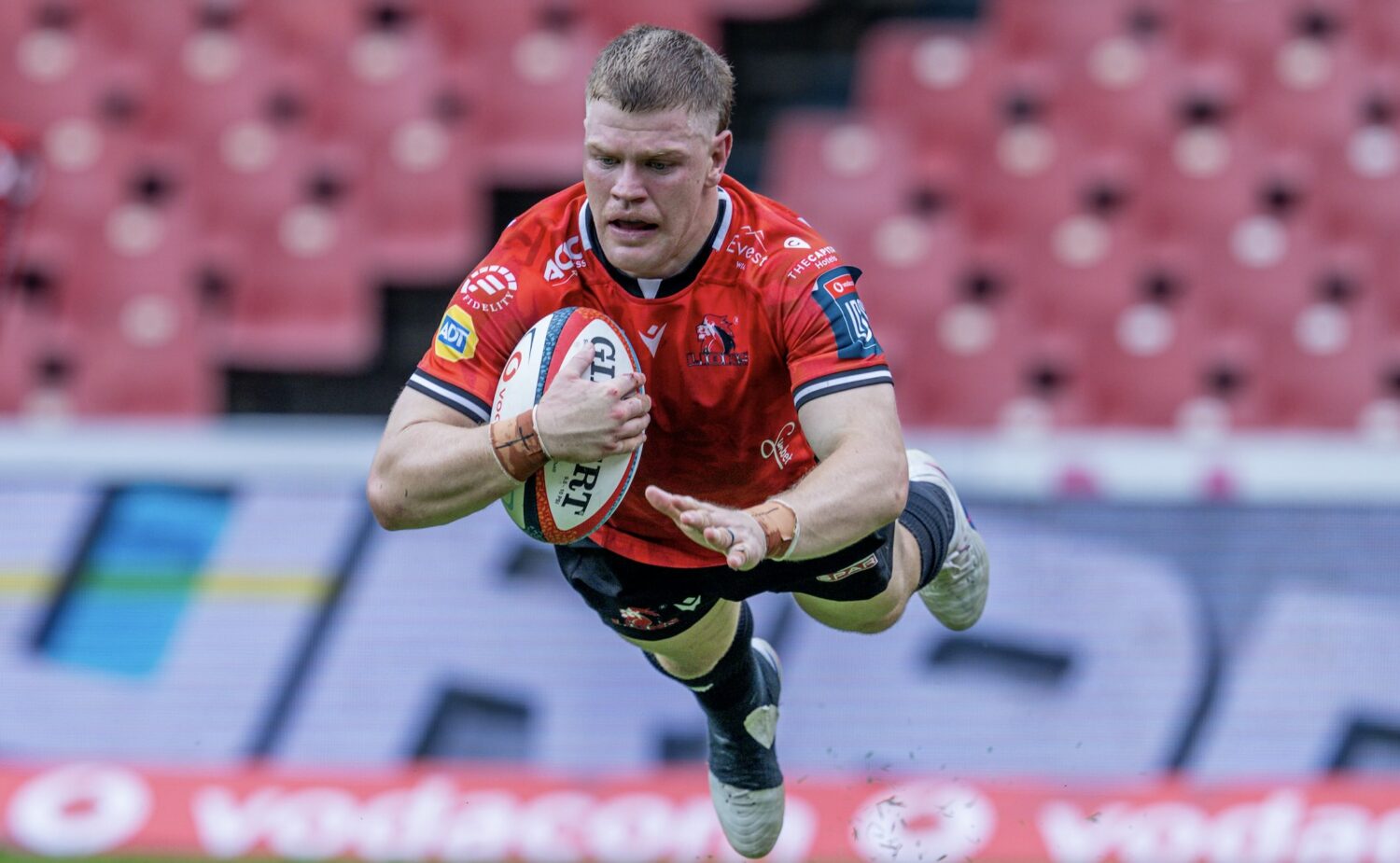
URC: The Lions, with Morne van den Berg massive, roared the loudest at Ellis Park with an emphatic win against the Sharks, for whom Jurenzo Julius was the best player.
Morne van den Berg was the pick of the Lions and the best player on display in the Lions bonus point win. The Springboks scrum half was at the heart of everything good about the Lions performance, in a Round 8 match that was played between Rounds 11 and 12 of the competition.
The win moves the Lions into seventh place in the URC and it also kept alive the SA Shield. Had the Sharks won, they would have claimed the Shield, given they already had three bonus-point wins in four matches against their South African colleagues.
The Sharks have beaten the Bulls and the Stormers twice and lost in the final play against the Lions in Durban a month ago.
But it is the Lions who now can claim the Shield if they beat the Stormers at Ellis Park next Saturday.
The Sharks will play the Bulls at Loftus in Pretoria next week and the Stormers and Bulls will complete the South African derbies within the URC in Pretoria on the 14th March.
The Lions coach Ivan van Rooyen picked his strongest match 23 and they were too powerful and precise for a Sharks match 23 missing seven of their first choice Springboks. Sharks coach JP Pietersen invested in youth and some hardened veterans, but the collective of the Sharks could not match the individual class of 21 year-old centre Jurenzo Julius, who ran with condition and with reward, scored a try, had one disallowed and always made metres in the tackle.
JULIUS IN BOKS MIDFIELD AUDITION
Veteran lock Jason Jenkins battled hard, but that was the lot for the visitors who are ninth in the URC league standings. They have four wins in 11 matches.
Van den Berg was the general at No 9, his halfback partner Chris Smith did not miss a kick at posts and the Lions midfield of Bronson Mills and Henco Van Wyk were convincing as a pairing.
Wingers Angelo Davids and Kelly Mpeku chased everything and turned every kick into an attacking one.
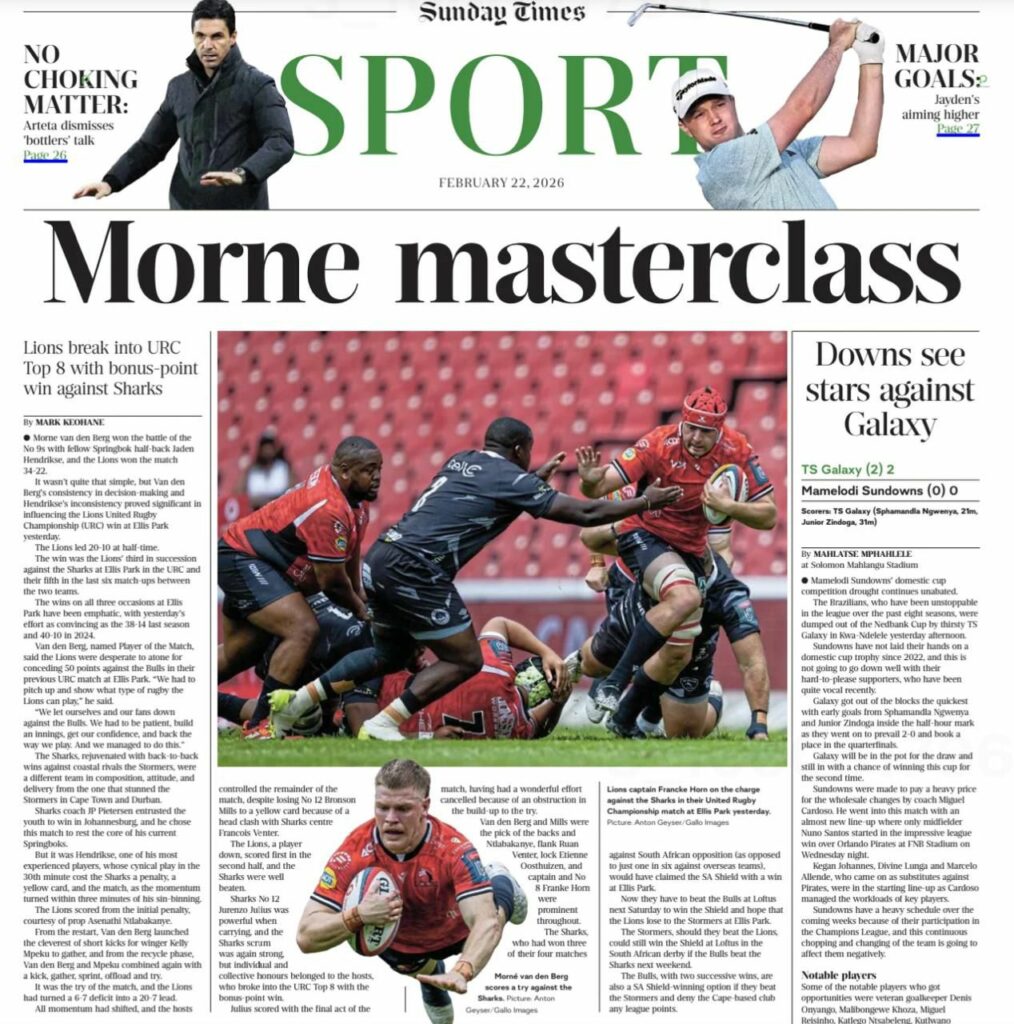
Lions fullback Quan Horn was confident and flanker Ruan Venter, lock Ettienne Oosthuizen were a menace and a presence. My personal favourite Asenathi Ntlabakanye produced trademark tackles, handled the tighthead side of the scrum effectively and was regular in taking the ball to the line.
Van den Berg was very good and the Lions were very good in responding from the 52-17 defeat a fortnight ago against the Bulls at Ellis Park.
The Lions have beaten the Sharks in the last three matches at Ellis Park in the URC, each time comfortably, and have won five of the last six matches against the Sharks.
UNITED RUGBY CHAMPIONSHIP LATEST – WATCH THE LIONS v SHARKS HIGHLIGHTS
International Rugby
Ireland find their identity & Scotland find a way to win away from home

Ireland are celebrated for finding their identity in a record 42-21 win against England at the Allianz Stadium in Twickenham and Scotland are lauded for finding a way to win a Six Nations match away from home. Here’s your media summary.
What the English media led with
-
England’s recurring fast-start problem became the story again – an opening half-hour where Ireland went 22-0 up and effectively ended the contest.
-
The post-match tone is brutal: “humiliation”, “nightmare”, “questions everywhere” around England’s direction, selection calls, and a side that’s messy under pressure (turnovers, set-piece errors, poor exits).
-
Even where England “had entries”, the message is the same: they didn’t convert pressure into points, and Ireland did – clinically.
What the Irish media led with
-
A statement win built on speed, accuracy and edge – Ireland’s first-half blitz, then second-half control (Sheehan’s early score after the break = the hammer).
-
The Irish framing is “old guard / leaders / selection calls justified” – Crowley steering, Gibson-Park snapping, McCloskey giving them gainline ballast.
-
Farrell’s tone in reaction coverage: values + connection + belief (less “tactics board”, more “identity restored”).
Former players / influential voices (social + pundit loop)
-
Dan Sheehan (via ITV quote carried by SA Rugby Mag): framed it as hunger + belief + emotional lift after the France loss – and called it one of their best performances.
-
The wider pundit theme (echoed across liveblogs + post-match reaction): Ireland’s dominance wasn’t fluke finishing – it was system + tempo + accuracy, with England chasing shadows and confidence.
-
“I backed England” regret content is already circulating (ex-player prediction culture) with former England fullback Mike Brown getting stick in UK rugby-content spaces after calling it wrong. He is just one of many. Andy Goode called for a rethink of Steve Borthwick as head coach and challenged Borthwick for a rethink of his selections.
South African view (SA Rugby Mag)
Two clean angles SA Rugby Mag are pushing:
-
Mocke the notion that three weeks ago England were favourites to win the World Cup, according to their media, and now they have been destroyed, away to Scotland and at home to Ireland on successive weekends.
-
Player-reaction line: Sheehan’s “special” framing – Ireland tapped into travelling support and came out of the blocks.
What Six Nations official platform says …
The official match report leans hard into:
-
Frenetic start, Crowley penalty, then Gibson-Park’s quick-tap try as the tone-setter.
-
The decisive rhythm: England scratched (Dingwall / Lawrence / Underhill), but Ireland had answers (Sheehan + Osborne) and controlled the contest after going 22-0 up.
KEO’S VIEW
I had England to win 30-21 based on Ireland’s lack of form in November against the All Blacks and the Springboks, and their defeat against France in Paris, coupled with their escape at home against Italy a week ago. What I overestimated was the quality of the England team to respond to last weekend’s drubbing against Scotland at Murrayfield. I also thought England would lift for captain Maro Itoje’s 100th Test for England. I underestimated that Ireland would find their identity or play in a way that speaks to the identity that made them a top two side and momentarily had them ranked one in the world. The visitors were superb. This is the first time they have beaten England by more than 20 points. I thought they were as inspiring as England were inept.
EVERY PLAYER AND TEAM STAT AFTER ROUND 3 OF THE SIX NATIONS
WALES v SCOTLAND – Wales improved, Scotland escaped
Result: Wales 23 Scotland 26 (Turner try + Russell conversion in the 75th minute).
Scottish media tone (and Scotland lens generally)
-
The Scotland lens is “not pretty, but champion teams steal these” – resilience, finish, Russell influence, and bench impact (Turner delivering the match winner).
-
Scotland’s broader narrative: they’re alive in the championship picture (table pressure) because they can now win away, even when off their game.
Welsh media tone (and Wales lens generally)
-
The Wales lens is heartbreak with a sliver of hope: this was their best showing of the championship so far, but they still found a way to lose it late (errors, discipline, closing moments).
-
The hard number that will sit in every Welsh recap: 14 straight Six Nations losses (and counting).
Former players / influential voices (social + pundit loop)
-
The Guardian’s live coverage explicitly notes former Welsh captain Sam Warburton praising Wales’ belief/performance despite the late gut-punch.
South African view (SA Rugby Mag)
-
Scotland “snatch” it from a “passionate Wales” – which tells you the editorial emphasis is Wales’ emotional performance and Scotland’s late ruthlessness.
What Six Nations official platform says …
The official report makes it very usable for your structure:
-
Wales deserved the first-half lead: Carre + Adams tries, Costelow kicking, and a genuine edge in the arm-wrestle.
-
The swing: Scotland’s second-half surge, and Wales being denied their first win again a “remarkable comeback” headline win for Scotland.
KEO’S VIEW
The question is what hurts most for the hapless Welsh supporters; to concede 50 points each time at home or to be five minutes away from winning and then to lose by a late converted try after leading 20-5 early in the second half? Scotland showed composure in the final 10 minutes and Wales, so desperate and filled with desire, had nothing left in the tank once Scotland took the lead 26-23. For a neutral it was a bloody good Test, filled with every drama.
KEO News Wire
Ellis Park is a Springboks audition for Julius and Van Wyk
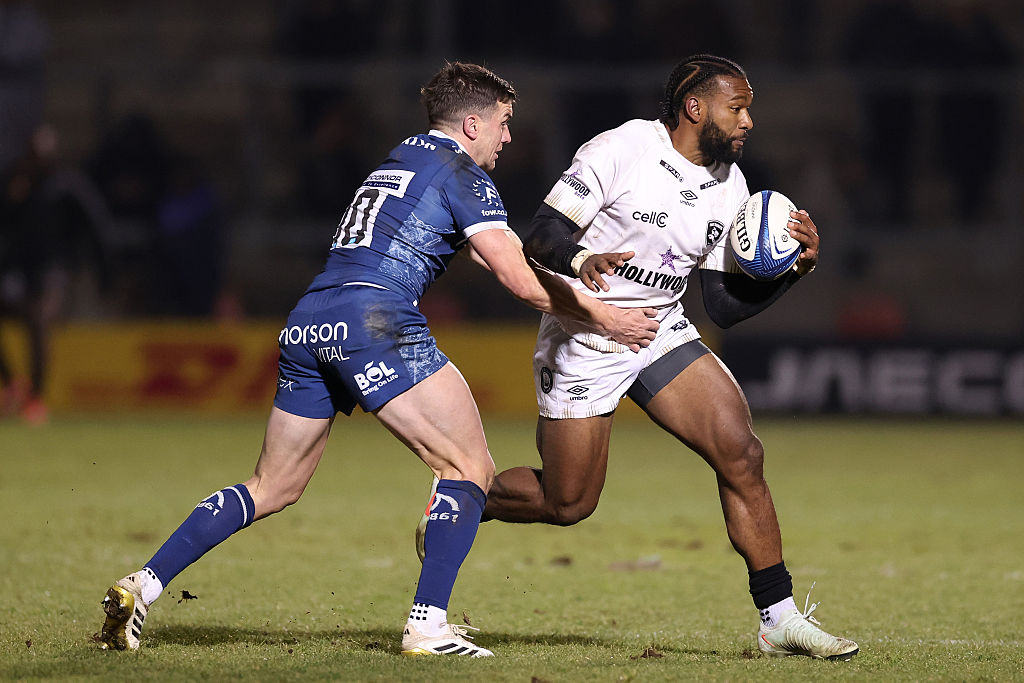
Jurenzo Julius and Henco van Wyk were colossal midfielders as schoolboys. Now they get the chance to make a statement to Springboks coach Rassie Erasmus that they should be on the national radar, if not for 2027, then definitely for the 2031 World Cup in the USA.
The Lions host the Sharks in the URC at Ellis Park on Saturday, and it is the performances of Julius, for the Sharks, and Van Wyk, for the Lions, that excites me the most in this match.
Julius, many forget, is still just 21 years-old. Equally is Van Wyk’s youthfulness at 24. The latter seems to have been around for a decade.
Both have carried the tag for best of in their class, with Van Wyk the Junior Springbok of the Year in 2021 and Julius the Junior Springbok of the Year in 2024.
Erasmus has never selected on sentiment and he has always been consistent that he differentiates between who is considered the best in a particular position and who is the best for his national squad.
He rates Julius and Van Wyk, having invited them to national alignment camps and picked Van Wyk for the senior SA XV that toured the north a few seasons ago.
Both players fit the mould of what Erasmus wants in a player. They have physical presence, skill and an engine.
Julius was so good when playing for Paul Roos in Stellenbosch, and equally imposing for SA under 18s and SA under 20s. Van Wyk, a few years before that, enjoyed as many accolades as the premier South African junior midfielder.
Van Wyk’s biggest challenge has not been that of selection at the Lions, but being consistently fit and available, whereas Julius walked into a Sharks set-up of Springbok midfielders in Lukhanyo Am, Francois Venter and current captain Andre Esterhuizen.
Ethan Hooker, who was used at centre and on the wing, played Test rugby for the Springboks in 2025 as a winger, but Sharks coach JP Pietersen has paired him with Esterhuizen in the past month. AM has left for Japan and Venter, alongside Julius on Saturday, has a greater mentoring role.
The beauty of Julius is that each time he has been given an opportunity, he has delivered. Van Wyk has shown the same pedigree when injury has not derailed his season.
Julius can play 12 and 13 and would not be out of place on the wing, and Van Wyk’s skillset makes him an option at 12 and 13.
SHARKS SCHOOL STORMERS IN THE URC
Van Wyk, at Monument High and with the Golden Lions Craven Week side, was exceptional at age group level. His transition into junior international rugby and senior rugby was as smooth, until injuries rocked him. From 2022 to 2024, injuries were more damaging than any opponent.
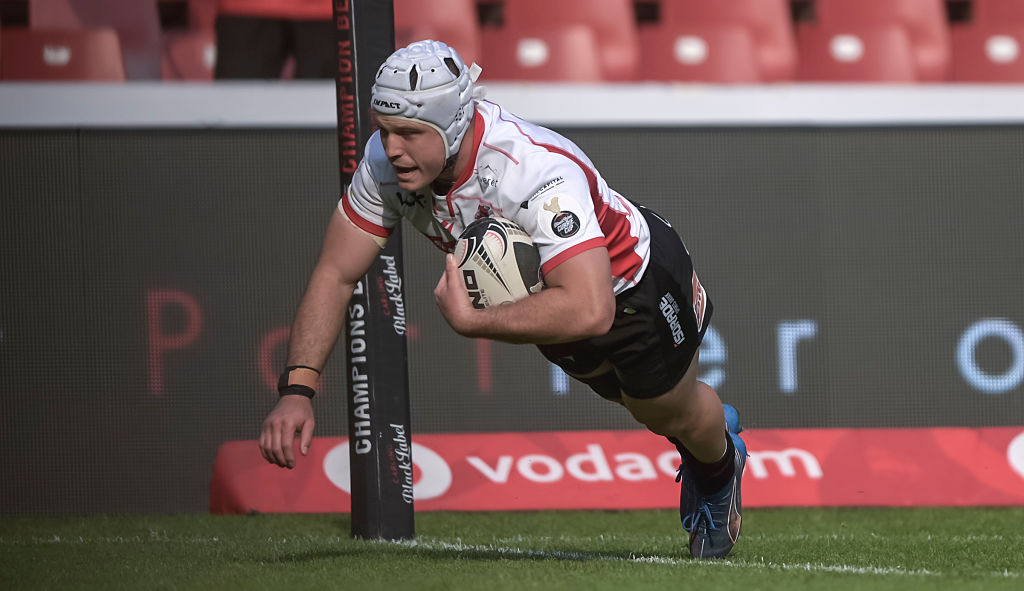
Photo: Christiaan Kotze/Gallo Images
What he is showing this season is the result of uninterrupted rugby. He is sharp, his confidence is obvious and he is the primary point of attack in a talented Lions backline.
South African rugby produces outstanding schoolboy midfielders every year, and the latest is Paarl Gim’s Markus Muller, who is part of the Stormers squad and is currently on national duty with the SA under 20s.
Julius and Van Wyk will be mindful of the hype around Muller and they will be keen to remind him and another 2025 schools graduate, Grey College and Free State’s Ethan Adams, that there is a senior midfield queue and that the class of 2019 and 2024 are on the rise.
View this post on Instagram
Recent head-to-head (URC meetings)
-
Jan 2026: Sharks 22–23 Lions (Durban)
-
Mar 2025: Sharks 14–38 Lions (Johannesburg)
-
Mar 2025: Sharks 22–25 Lions (Durban)
-
2024: Lions 40–10 Sharks (Johannesburg)
-
2024: Sharks 20–18 Lions (Durban)
Recent encounters show a clear home-field bias in Johannesburg, with the Lions winning comfortably there and edging the most recent contest in Durban.
LIONS v SHARKS: ALL THE TEAM NEWS
SATURDAY FEBRUARY 21
Lions v Hollywoodbets Sharks
Ellis Park, Johannesburg – KO 12.00 IRE & UK / 13.00 ITA / 14.00 SA
Referee: Griffin Colby (SARU, 12th league game)
AR 1: Aimee Barrett-Theron (SARU) AR 2: Zoe Naude (SARU)
TMO: Quinton Immelman (SARU)
Live on: SuperSport, Premier Sports, Flo Rugby & URC.tv
International Rugby
Round 3 of Six Nations: Everything you need to know

Teams, kick-off times, data, match-ups. Look no further. We have everything you need to know for Round 3 of the Six Nations as France plays Italy, Wales host Scotland and England take on Ireland.
The big talking point this weekend will be the flamboyant England loose-forward Henry Pollock’s first start at No 8.
AFRICA PICKS: WHERE TO MAKE YOUR SIX NATIONS MONEY THIS WEEKEND
WHO’S RUNNING THE HOTTEST IN SIX NATIONS
Six Nations Round 3: Pollock’s Call, Ireland’s Test, Scotland’s Edge, France’s Warning
The headline is at Allianz Stadium. Henry Pollock gets his first start at No 8 for England against Ireland. It is refreshing from England coach Steve Borthwick and it changes the shape of England’s loose trio. Pollock joins Tom Curry and Ben Earl in a back row built for tempo and confrontation.
ENGLAND v IRELAND
Kick-off: 18:00 (UK), Saturday 21 February
Venue: Allianz Stadium
England
Steward; Freeman, Lawrence, Dingwall, Arundell; Ford, Mitchell; Genge, Cowan-Dickie, Heyes, Itoje (capt), Chessum, T Curry, Earl, Pollock.
Replacements: George, Rodd, Davison, Coles, Pepper, Underhill, Van Poortvliet, M Smith.
Ireland
Osborne; Baloucoune, Ringrose, McCloskey, Lowe; Crowley, Gibson-Park; Loughman, Sheehan, Furlong, Ryan, McCarthy, Beirne, Van der Flier, Doris (capt).
Replacements: Kelleher, O’Toole, Bealham, Conan, Timoney, Casey, Frawley, O’Brien.
England’s 12-match winning run ended at Murrayfield, but at home they remain reliable. Their last defeat in London came in November 2024. Since then, nine straight wins. That matters.
Ireland, though, have owned this fixture recently. Five wins from the last six. The only loss in that stretch was a last-minute drop goal in this stadium two years ago.
Andy Farrell reshapes his spine. Jack Crowley starts at fly-half for control. Tadhg Furlong returns to strengthen the scrum. Beirne, Van der Flier and Gibson-Park are back. Ireland are leaning into experience because England at Twickenham demands it.
Recent results:
2025 (Dublin): Ireland 27–22 England
2024 (London): England 23–22 Ireland
2023 (Dublin): Ireland 29–16 England
View this post on Instagram
WALES v SCOTLAND
Kick-off: 16:40 (UK), Saturday 21 February
Venue: Principality Stadium
Wales
Rees-Zammit; Hamer-Webb, James, Hawkins, Adams; Costelow, T Williams; Carre, Lake (capt), Francis, Jenkins, Carter, Plumtree, Mann, Wainwright.
Replacements: Elias, Smith, Griffin, F Thomas, Botham, Hardy, J Evans, Murray.
Scotland
Kinghorn; Steyn, Jones, Tuipulotu (capt), Van der Merwe; Russell, White; McBeth, Cherry, Z Fagerson, Williamson, Cummings, Brown, Darge, M Fagerson.
Replacements: Cherry, Schoeman, Millar-Mills, Williamson, M Fagerson, Horne, Hastings, Graham.
Wales are 0-from-2 and hurting. Scotland arrive confident after reclaiming the Calcutta Cup against England. Momentum says Scotland, recent history in this clash and Wales’s woeful two wins in their last 25 Tests, says it has to be Scotland.
Welsh coach Steve Tandy has made changes. Sam Costelow takes over at 10. Taine Plumtree strengthens the back row and Ben Carter’s form earns him reward. Blair Murray offers bench spark. Scotland have recalled power winger Duhan van der Merwe and Toulouse fullback Blair Kinghorn.
Recent results:
2025 (Edinburgh): Scotland 35–29 Wales
2024 (Cardiff): Wales 26–27 Scotland
2023 (Edinburgh): Scotland 35–7 Wales
View this post on Instagram
FRANCE v ITALY
Kick-off: 15:10 (UK), Sunday 15 February
Venue: Stade Pierre Mauroy
Italy left Dublin believing they are good enough to beat the very best, but still vulnerable in the big clutch plays. They pushed Ireland and were frustrated not to get the job done. The problem now is scale. France have opened this championship with authority and pace.
Last year in Rome, France dismantled Italy, but the more relevant match is the 13-all draw in Lille in 2024. Paolo Garbisi hit the post from a penalty attempt with the last kick of the match. It would have been Italy’s first win against France in France.
Italy’s backline is ambitious and their pack is no longer passive, but France, in the 2025 Six Nations and in the opening fortnight of 2026, have set the standard.
Recent results:
2025 (Rome): Italy 24–73 France
2024 (Marseille): France 13–13 Italy
2023 (Rome): Italy 24–29 France
If you want a snapshot of the weekend’s matches, England have entrusted youth in the name of Pollock, Ireland have opted for experience and the old guard, Wales, well they continue to search for relevance, and Scotland want consistency. Italy have belief but they are up against the best team in the competition who are playing with the authority of a champion.
International Rugby
Who’s running the hottest in the Six Nations

France have dominated the first fortnight of the Six Nations and they will continue the dream start to the 2026 tournament when hosting the improving Italy. Individually, the French players are also making the biggest statistical statements.
The French backs Louis Bielle-Biarrey, Theo Attissogbe and Matthee Jalibert are the most prominent in attack, with the two wingers three tries each second only to England winger Henry Arundell’s four.
No 10 Jalibert has scored two tries and made 32 carries, three more than his halfback partner Antoine Dupont, and four less than fullback Thomas Ramos’s 36. England’s No 8 Ben Earl has made the most carries (41).
Ramos, Bielle-Biarrey, Jalibert and Attissogbe are placed second to fifth in metres made, with Wales’s Louis Rees-Zammit topping the list with 238.
Jalibert, who was sensational for Bordeaux in the Investec Champions Cup Pool rounds, has been as good for France in the Six Nations.
No player has such a presence in so many facets of play.
Jalibert (10), Ramos (8) and Dupont (5) have made the most offloads, and Jalibert’s four try assists is the most.
Jalibert (10), along with Rees-Zammit, England’s Tommy Freeman and Scotland’s South African-born winger Kyle Steyn, has beaten the most defenders.
Jalibert (21) and Dupont (29) have combined for 50 kicks in play. England flyhalf George Ford leads the list with 34. Ford’s kick metres are the most, 1245, while Dupont (third with 827 metres) and Jalibert (sixth with 610 metres) total 1437 metres.
Jalibert (7) and Dupont (6), as a halfback duo, have no equal in the competition, combining for 13 kicks retained. Scotland’s Ben White, individually, is the leader with 10.
Jalibert (13) has bounced the most kicks, with Ford (11) in second place and Dupont third with 10.
Lineout steals have been minimal and Italy’s Manuel Zuliani and Michele Lamaro are the best with two each.
Defensively, Wales’s Aaron Wainwright (9) and Freeman (9) lead the dominant contact, with France’s Charles Ollivon and Earl (7) the next best.
Wainwright, with this dominance in contact, has the most post contact metres (55), followed by Freeman and Earl with 53 each.
The French attack has been on fire but defensively the French have been as good. Lenni Noguchi and Oscar Jegou, along with Italy’s Manuel Zuliani and Lorenzo Cannone and Steyn are grouped at the top with four each in the dominant tackle category.
(Lorenzo) Cannone, with 37, has the most successful tackles. Niccolo Cannone has 35 and Jegou 34.
Scotland’s Rory Darge (6) has won the most turnovers, with Zuliani second (5) and France’s Michael Guillard and Ireland’s Stuart McCloskey on four each. Winger Attissogbe has won three turnovers.
Wingers understandably dominate the attacking catch success with Ireland’s James Lowe, Arundell, Italy’s Louis Lynagh and Bielle-Biarrey all successful with two catches.
Ramos and Ford have scored the most points and they are the two most accurate sharpshooters, with Ramos tops with 85.7 percent and Ford striking at 81.8 percent.
EVERY PLAYER AND TEAM STAT FROM THE 2026 SIX NATIONS
International Rugby
France on fire as rugby’s media react to Six Nations

France are on fire, dispatching Wales with ease in Cardiff in Round 2 of the Six Nations. Scotland were the Brave and Ireland were the fortunate in Dublin. But on the evidence of two Rounds the world champions and No 1 ranked Springboks are still some way ahead of the chasing pack, which is more France than anyone else.
For those who don’t have time to scan every rugby site for Six Nations reaction, here is your summary, with the scanning brilliance of Chat and my own wrap and understanding of what unfolded.
AFRICA PICKS: DID YOU CASH IN ON YOUR SIX NATIONS BETS?
WALES v FRANCE (Cardiff) Reaction: “France are ruthless; Wales are broken”
Result context: France ran in 8 tries and hammered Wales 54–12 in Cardiff.
Six Nations official tone: “record-breaking” French performance; clinical, fast, and brutal.
The Northern Hemisphere themes (what the NH media agreed on)
1) France’s attack is now operating at “Grand Slam pace.”
The common thread: France didn’t just win – they stacked pressure, scored early, and never came down. Their execution looked title-ready, not “round-two ready.”
2) Jalibert ran the game; the French back three feasted.
Reuters singled out Matthieu Jalibert as “masterful”, with France’s shape and kicking hurting Wales repeatedly.
The Guardian focus: wings/finishers cashing in, with Théo Attissogbe front-and-centre.
3) Wales’ defensive system was the story and not in a good way.
Wales missed 31 tackles, with a 68% tackle success figure doing the rounds.
It also wasn’t lost on anyone that the crowd mood and attendance reflected a nation’s frustration.
-
Six Nations official: framed France as the tournament’s most clinical force; “run riot / record-breaking” framing.
-
Reuters: Jalibert masterclass; Wales defensive collapse; low attendance noted.
-
The Guardian: Attissogbe-led romp; France’s young backs looked fearless; Wales outclassed.
South African view (SA Rugby Mag / SA angle)
-
SA Rugby Mag (digital): blunt headline energy – “Rampant France rout woeful Wales” and the key SA takeaway: France are the only side still tracking a Grand Slam after two rounds.
-
Times Live: explicitly positioned this French run as a Springbok warning shot, tying it to SA’s own demolition job in Cardiff last November.
SCOTLAND v ENGLAND (Murrayfield) Reaction: “Scotland ambushed them; England had no Plan B”
Result context: Scotland beat England 31–20 and lifted the Calcutta Cup, ending England’s long winning run.
The Northern Hemisphere themes
1) Scotland’s start won it (and England never truly recovered).
Reuters captured it cleanly: Scotland sprinted into an early lead and played with belief; England spent the match chasing field position and control.
2) Finn Russell ran the show.
Across reports: Russell was the conductor control when needed, ambition when it was on.
3) Discipline (and Arundell) became England’s headline.
The red-card narrative dominated English-facing reaction, especially tabloid coverage.
4) “Plan A stalled” became the RugbyPass verdict.
RugbyPass pushed the familiar critique: England look blunt when their first pattern doesn’t land.
-
The Guardian: Scotland “stunned” England; big tries, big moments, and England’s errors/discipline issues.
-
Reuters: Scotland’s recent Calcutta Cup dominance underlined; Russell masterclass; Arundell card pivotal.
-
The Sun: framed it as Arundell “hero-to-zero”, Grand Slam hopes crushed on the Murrayfield hoodoo.
-
Sky Sports: breakdown angle on why England unravelled (discipline, start, game control).
South African view (SA Rugby Mag)
-
SA Rugby Mag: “Storming Scotland end England’s winning run” straightforward: England’s streak snapped; Scotland revived their campaign; Townsend milestone context.
-
SA Rugby Mag follow-up: quotes/angle pieces include Borthwick acknowledging England “gave them too big a start.”
IRELAND v ITALY (Dublin) Reaction: “Italy proved they belong; Ireland survived”
Result context: Ireland won 20–13, but the reaction was far more about Ireland’s wobble and Italy’s growth than Irish dominance.
The Northern Hemisphere themes
1) Ireland were “unconvincing” Italy dragged them into a scrap.
That “Ireland survived” framing is consistent across live reports and match wrap language.
2) Italy’s first-half performance made the story.
Italy led at the break; a maul try and defensive bite put Ireland under heat.
3) The Italian press angle: pride + frustration (and ‘it was there’).
Italian coverage leaned into: “great Italy for a half”, match flipped after the break, and the missed chance to land a historic result.
Outlet-by-outlet snapshot (Ireland + Italy)
-
Irish Times: Italy led 10–5 at half-time; Ireland turned it with second-half tries (Conan/Baloucoune) to regain control.
-
The Independent (UK): headline framing: “Unconvincing Ireland overcome half-time deficit” again, the win without the glow.
-
Gazzetta dello Sport (Italy): strong Italy for a half; Ireland “trembled” but won; the swing came after the break.
-
RAI News (Italy): second half “capsized” what looked like an Italian day; Italy started “azzurro” but Ireland flipped it.
-
Federazione Italiana Rugby (FIR): official Italian union tone: “grandissima Italia” that scared Ireland; positives to take even in defeat.
-
OnRugby (Italy): positioned it as the “almost” moment and a national conversation piece (reaction roundup).
FOR ALL THE LATEST PLAYER AND TEAM STATS FROM ROUND 2 OF THE SIX NATIONS
-
2026 Six Nations fixtures:
https://www.keo.co.za/2026-six-nations-fixtures-confirmed-france-to-open-blockbuster-campaign-on-a-thursday/ -
France v Ireland analysis:
https://www.keo.co.za/how-transformed-france-tortured-inept-ireland-in-paris/ -
Previous British media reaction piece:
https://www.keo.co.za/england-hammer-wales-as-british-media-deliver-brutal-six-nations-verdict/
International Rugby
Super Rugby Pacific: South African rugby is bigger without you
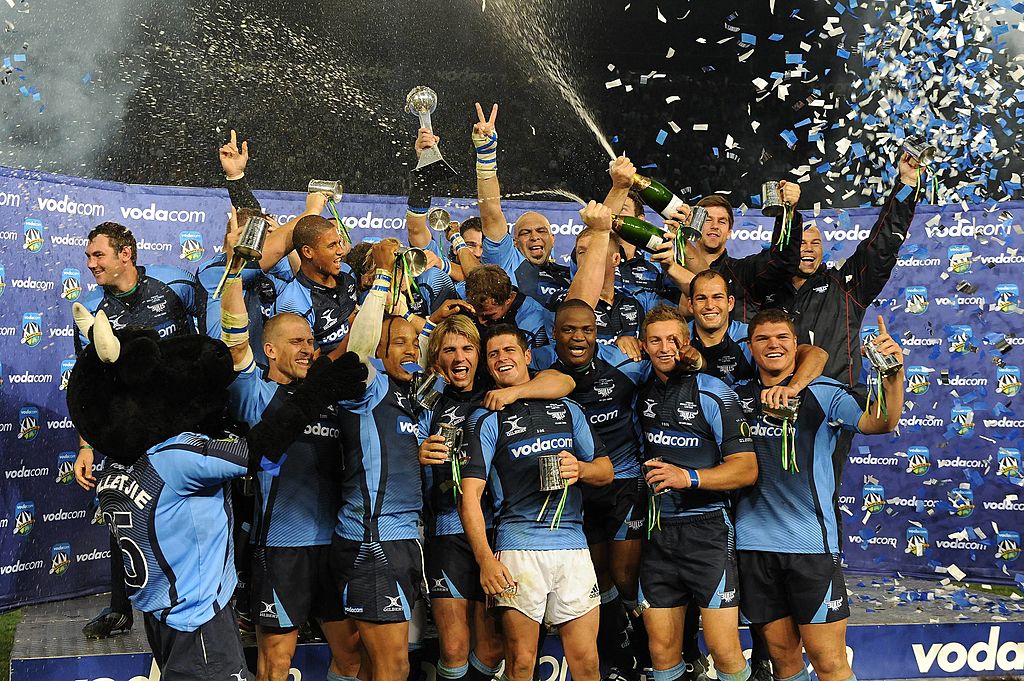
A message to Super Rugby Pacific. South Africa doesn’t want back into your competition. Not now. Not ever.
Super Rugby Pacific CEO Jack Mesley, speaking to Martin Devlin on DSPN, dismissed the idea of South African teams ever returning.
Pressed directly, he said:
“No.”
Asked why he would not welcome South Africa back into the competition, Mesley replied:
“If you go back and look at the data, those games did not rate well. They did not attend well. They did not rate like we’re rating now. They did not attend like we are attending now.”
He added:
“I think there is a romance associated with the South African days.”
Devlin joked:
“It always is about the girlfriend who leaves, mate.”
Mesley laughed and concluded:
“Even a South African one.”
Romance?
Let’s deal in reality.
The Springboks have thrived post Super Rugby’s exit.
Since South Africa shifted north post-Covid and into the United Rugby Championship and Investec Champions Cup, the Springboks have become the dominant force in world rugby.
- Two Rugby World Cups in 2019 and 2023.
- Back-to-back Rugby Championship titles in 2024 and 2025.
- Five wins in their last six Tests against the All Blacks.
- A record 43-10 demolition in Wellington.
- A 35-7 humiliation at Twickenham.
This is more a measurable dominance than it is a sentimental nostalgia.
South African clubs now play in a weekly high-intensity cross-hemisphere competition against Ireland’s provinces, French heavyweights and English power clubs. They play against Welsh, Scottish and Italian teams. The URC and Champions Cup demand travel, adaptability, and confrontation with contrasting styles.
It has hardened South African players tactically and physically.
They are preparing for Test rugby and World Cups. This is not the exhibition of Bledisloe or the basketball of Super Rugby Pacific.
The All Blacks have regressed since South Africa left Super Rugby
New Zealand’s post-Covid Test record tells a different story.
For the first time in the professional era, the All Blacks have looked physically vulnerable. They have been bullied at the collision and they have lost multiple home Tests. They have been beaten consistently by the Springboks.
The annual three-week Super Rugby tours to South Africa once conditioned New Zealand franchises for brutality. Playing the Bulls at Loftus, the Stormers in Cape Town, the Sharks in Durban, and making trips to Bloemfontein and Ellis Park were a weekend physical audit.
That audit no longer exists.
Super Rugby Pacific is now largely an internal New Zealand competition with Australian and Pacific participation. The physical edge that South African teams brought has disappeared.
Eddie Jones, speaking to Devlin, bluntly addressed the decline.
“That’s the other thing that’s changed for New Zealand Rugby; Super Rugby was the greatest influence on world rugby for a long period of time. Whatever happened in Super Rugby basically set the trend for the game.”
He continued:
“Unfortunately, Super Rugby has dropped in terms of status. We all know South Africa has left, and now it’s a competition that doesn’t have as much influence around the world.”
What Jones is articulating is the structural erosion of the competition. Super Rugby, in its original Super 12 guise, had no equal in world rugby’s club environment. Super Rugby Pacific is now an afterthought to competitions like the Investec Champions Cup, the URC, the English Prem and France’s Top 14.
Super Rugby Pacific produces strong local derbies and healthy domestic numbers, but globally, its relevance has shrunk.
The winner is almost invariably a New Zealand side, the style is about attack and little regard for the nuances of Test rugby, especially World Cup rugby, and the buzz word is entertainment, ball in play and no respect for the pressure moments that define World Cup titles.
Test rugby is not exhibition rugby.
When confronted by the Springboks’ power game or France and England’s pack-driven precision, the All Blacks have looked less conditioned for the grind.
South Africa, meanwhile, are conditioned weekly in Europe and then sharpened further in the Rugby Championship.
The Arrogance
New Zealand Rugby previously dismissed South Africa’s contribution to Super Rugby. The outgoing CEO Mark Robinson made clear that the competition would move on without South Africa before even formally informing SA Rugby leadership.
Robinson, an average All Black, has been even more mediocre as NZ Rugby CEO. His reward for cocking it up was to get a job from his Aussie mate (World Rugby Chair) and namesake Brett Robinson, as the Chief of Rugby.
Chief of Rugby? What the Chair means is a portfolio created before appointing Robinson as the CEO of World Rugby.
It is messy, but not as messy as the illusion that Super Rugby Pacific has a global appeal.
SUPER RUGBY PACIFIC CEO MESLEY MOCKS SA RUGBY
Mesley speaks of romance and laughs at the idea of a South African return. Look, he is an Aussie, so that explains a few things.
But to believe he knows rugby is a stretch, despite the purple prose on his appointment.
Super Rugby Pacific Chair Kevin Malloy said Mesley’s strong marketing background and practical skillset made him ideally suited to the Super Rugby Pacific CEO role.
“What set Jack apart from a strong pool of candidates following a thorough search was his passion for rugby, his enthusiasm and a breadth of experience in both marketing and sports,” Malloy said.
OK, if you want to believe that Kev!
These are strange times in New Zealand rugby.
An ex-All Black in Robinson rejuvenated the Springboks in kicking South Africa out of Super Rugby and an Aussie marketer has added to New Zealand’s misery with his promotion of an insular Pacific competition.
The irony in the Republic is that South Africa still respects New Zealand. It is the Test South Africans always want to experience.
The Greatest Rivalry Tour later this year is sold out, within hours of tickets going on sale.
The All Blacks remain rugby’s most recognisable brand in South Africa, and there is no smugness in the Republic when South African rugby people speak of NZ Rugby or the All Blacks. There is only respect and a varying degree of adulation.
Mesley speaks with a smirk about South African romance in Super Rugby, but the South African game has grown stronger on every front since moving north and New Zealand rugby has grown smaller without South Africa.
There is a word in South Africa for dismissive arrogance dressed up as data. There is a word for Mesley.
It starts with a P … and it isn’t Pacific.
International Rugby
England hammer Wales as British media deliver brutal Six Nations verdict

England didn’t just hammer Wales 48-7 at the Allianz Stadium in Twickenham; they reminded the visitors that they will only be good for the wooden spoon in the 2026 Six Nations.
The contest was over before kick-off but confirmed as officially over before the 20th minute when Wales trailed 10-0 and were reduced to 13 players. That score doubled to 22-0 before the 30th minute and it could have been even more damning but for England’s inaccuracy and many poor decisions when playing 15 versus 13.
The British media were ruthless in their assessment of England’s demolition of the Welsh, with the flameless Dragons offering no resistance. Their discipline collapsed, belief vanished, and England didn’t need to be spectacular to be savage.
Henry Arundell scored a hat-trick and No 10 George Ford was voted Player of the Match. Wales’ catastrophic discipline, turned a historic rivalry into a one-sided examination.
Across the UK press, the only argument was about how deep Wales’ problems run.
Planet Rugby
Planet Rugby framed the match as an England statement, focusing on clarity of attack and ruthless punishment of Welsh indiscipline. Their assessment was that England didn’t chase miracles – they simply played what was in front of them and dismantled a side repeatedly reduced by yellow cards.
🔗 https://www.planetrugby.com
RugbyPass
RugbyPass led with England “running riot”, highlighting Arundell’s finishing and Ford’s authority at No 10. The tone was decisive: Wales lost control early and never recovered, leaving England to dictate tempo, territory and scoreboard.
🔗 https://www.rugbypass.com/news/england-stars-run-riot-as-wales-dismantled-in-six-nations-opener/
BBC Sport
BBC Sport focused on England’s composure, stressing how quickly the contest slipped away once Wales started collecting yellow cards. England were praised for discipline and patience – doing nothing spectacular, but everything right.
🔗 https://www.bbc.com/sport/rugby-union
The Guardian
The Guardian called it a resounding win, pointing out England left points on the field while Wales self-destructed. Their report linked the performance to wider Welsh instability, suggesting the problems extend well beyond 80 minutes.
🔗 https://www.theguardian.com/sport/2026/feb/07/england-wales-six-nations-match-report
Rugby365
Rugby365’s reaction was blunt and familiar: ill-discipline killed Wales, England simply obliged. The outcome was decided early, repeated penalties and cards ensuring no route back.
🔗 https://rugby365.com
SA Rugby Magazine
SA Rugby Mag viewed the result through a global lens – England rising, Wales regressing. Less about the score, more about trajectory, with England building momentum in winning for a 12th successive match, and Wales stuck in survival mode.
🔗 https://www.sarugbymag.co.za
Welsh response
Welsh media reaction were more sombre than angry. Discipline, fragility and a lack of physical authority were recurring themes. The concern is no longer about losing to England; it’s about how easily Wales are folding under pressure.
*Italy beat Scotland 18-15 in Saturday’s early game.
HOW THE MEDIA RATED FRANCE BEATING IRELAND 36-14
ALL THE PLAYER AND TEAM STATS FROM ROUND 1 MATCH CENTRE OF THE 2026 SIX NATIONS
International Rugby
How transformed France tortured inept Ireland in Paris

France changed players, approach and tactics to torture Ireland 36-14 in Paris in the Six Nations. We look at the difference between 2026 win and the 2025 win by France against Ireland in Dublin.
Ireland 27 France 42
Six Nations 2026 – Paris
France 36 Ireland 14
Here’s what France did differently.
1) 2026: France dominated the match. 2025: France stole it with efficiency.
Dublin 2025: Ireland had 58% possession and 53% territory, and France still won by 15. France were happy to defend for long stretches (they made 187 tackles) and then punish Ireland when the game fractured.
Paris 2026: France flipped that script. They had 55% possession and 59% territory and played the game mostly in Ireland’s half. That’s not “clinical counterpunching”. That’s control.
The tell: France ran for 588 metres in 2026 vs Ireland’s 385. In 2025 it was basically even (474 vs 477). France went from “equal metres, better strike-rate” to “more ball, more territory, more metres, more everything.”
2) 2026: France carved Ireland open. 2025: France finished better than Ireland.
Clean breaks
-
2025: France 7 clean breaks, Ireland 5 (tight margin).
-
2026: France 19 clean breaks, Ireland 5 (a gulf).
That’s the difference between a game you win and a team you hurt.
3) 2026: France’s pressure forced Irish errors at scale.
Ireland’s “handling under heat” fell apart in Paris:
-
2026 turnover knock-ons: Ireland 11, France 6
-
2025 turnover knock-ons: Ireland 7, France 3
France didn’t just wait for mistakes in 2026. They manufactured them with territory, line-speed, and contestable moments.
4) 2026: Ireland couldn’t tackle France. In 2025 they couldn’t stop France finishing.
-
2025 missed tackles: Ireland 23 (France 16)
-
2026 missed tackles: Ireland 42 (France 21)
That’s not “a few soft shoulders”. That’s structural stress: repeated breaks, repeated reloads, repeated one-on-ones lost.
5) 2026: France won the first hour. 2025: France won the key moments (and the second-half surge).
In Paris, Ireland were 29–0 down before they got going. France had already cashed the bonus point and then eased.
In Dublin, France’s big statement was the second-half blitz, after losing Antoine Dupont early (he went off around the half-hour and later it was confirmed as a cruciate injury).
So:
-
2025: a win built on resilience + clinical finishing after disruption.
-
2026: a win built on front-foot brutality + sustained dominance.
6) The halfback axis changed – and so did the type of threat.
In 2026, with Ntamack out, Jalibert started and had a direct hand in multiple tries, while Dupont called their connection “very positive.”
That matters tactically: Jalibert tends to play flatter and more visibly, and France’s attack in 2026 looked like a team choosing to rip you open in-phase, not just punish you when you overplay.
The simplest summary
Dublin 2025: France were ruthless in chaos – even while defending for long spells.
Paris 2026: France were ruthless in control – more territory, more breaks, more metres, and Ireland cracked.
This is where the regression is most obvious – and most damaging.
1) Physical dominance at the contact point
Ireland’s biggest slide is brutally simple: they are no longer winning collisions consistently.
Against France in Paris, Ireland were regularly knocked backwards in contact, which killed their ability to play fast, accurate phase rugby. Once that happens, everything else collapses – tempo, shape, decision-making.
A season earlier in Dublin, Ireland could still absorb France’s power and recycle quickly. In 2026, France dictated the gainline on both sides of the ball and Ireland were playing from behind bodies instead of on top of them.
This is the clearest regression because Ireland’s entire system is built on fast ruck ball. Take that away and the system has no oxygen.
2) Defensive resilience under sustained pressure
Ireland used to bend without breaking. They now bend, fracture, and then leak tries.
The missed-tackle spike in Paris wasn’t about effort – it was about:
-
repeated reloads
-
fatigued edge defenders
-
centres and back-three players making late, reactive reads
In Dublin 2025, Ireland could survive France’s big moments and reset. In Paris 2026, once France scored early, Ireland never regained defensive authority. The scoreline at halftime wasn’t a fluke it was the logical outcome of structural stress.
3) Attacking clarity without Johnny Sexton
This is not about nostalgia – it’s about control.
Ireland have regressed in:
-
in-game management
-
territory selection
-
when to slow down a match
In Paris, Ireland chased the game far too early, forcing passes under pressure instead of building pressure. Sexton’s absence isn’t about individual brilliance – it’s about knowing when not to play.
Ireland still have quality decision-makers, but they don’t yet have a single, dominant conductor who can steady the ship when momentum is gone.
4) Backline punch against elite defences
Ireland’s backs no longer frighten top-tier defences the way they did in 2022–2024.
Against France:
-
line breaks were rare
-
defenders were not fixed
-
edge space was never clean
France could defend honestly and aggressively, without having to overfold or gamble. That is a massive red flag.
A year ago, Ireland could create indecision. In Paris, France defended with certainty.
5) Psychological authority
This is subtle – but it matters.
Ireland used to walk onto the field believing they could impose themselves on anyone. In Paris, once France landed early blows, Ireland looked like a team hoping the storm would pass rather than one capable of changing the weather.
The best Ireland sides of recent years could absorb momentum swings and reassert control. This version struggled to do either.
The uncomfortable truth
Ireland haven’t fallen off a cliff – but they have slipped off a plateau.
They are no longer physically dominant, tactically inevitable, or psychologically imposing against the very best.
FRANCE 36 IRELAND 14: EVERY PLAYER AND TEAM STAT
AFRICA PICKS: YOUR BEST MONEY-MAKING SIX NATIONS BETS
*CHAT supported
International Rugby
Fiery French applauded as alarm bells ring for Ireland
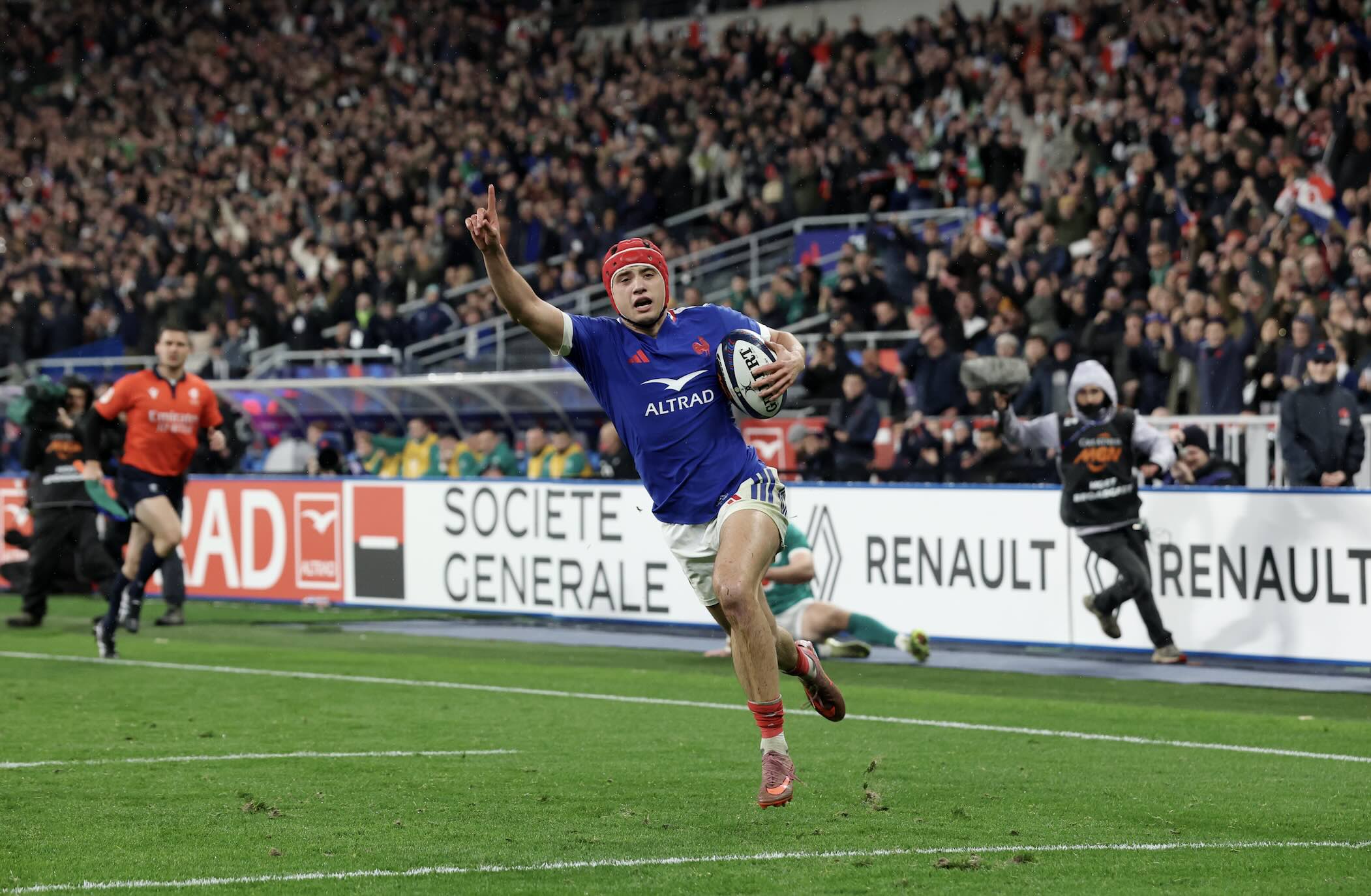
Conviction in the performance, but caution in the storytelling summarised the French media reaction to their brutal 36-14 Six Nations win against Ireland Paris. For the Irish, it was a case of alarm bells ringing.
France had destroyed the Irish in Dublin 42-27 a season ago having led 42-15 with 10 minutes to play. Two late tries added some comfort for Irish supporters. Then came the defeat to the All Blacks in Chicago and the humiliation against the Springboks in Dublin.
Paris was equally damning for Ireland as they were steamrolled.
France led 22 nil at half time and 29 nil after 57 minutes.
Two Irish tries between the 60th and 65th minutes offered more caution to France than hope to Ireland and the hosts finished the final five minutes attacking the Irish try line before crossing for their fifth try.
France are the bookies’ favourites to defend the Six Nations title won last season.
I asked my mate at ChatGPT to do a round up of how the Irish and French Rugby Media reacted to the match.
The Irish Times
Tone: bruised realism.
Summary: framed it as a throwback “Parisian beating” and a reminder of “bad old days” patterns, with Ireland blown away early and left trying to salvage dignity late.
Irish Independent
Tone: alarm bells, big-picture worry.
Summary: leaned into “new reality” language: Ireland didn’t lose a classic, they lost a mismatch, and the margin could have been uglier without the late rally.
Irish Examiner
Tone: sharp critique of Ireland, plus the French pace-setter angle.
Summary: sold it as France starting and finishing with a flourish while Ireland were “abject” for too long; a fast French start “filleted” Ireland before the game ever became a contest.
The Times
Tone: statement win, title warning shot.
Summary: framed it as France sending a message to the championship, with the emphasis on the bonus-point dominance, the early avalanche to 29–0, and Ireland being outmuscled and out-thought until the contest was gone.
L’Équipe (“Le Quippe”)
Tone: controlled praise with a small caution.
Summary: credited a brilliant, accurate French first-half and “seductive” spell, then noted France were less sovereign after the break when they conceded two tries that slightly stained the overall polish.

Rugbyrama
Tone: France’s tempo and discipline as the headline.
Summary: stressed how France’s pace exhausted Ireland, how clean the first-half was (discipline/accuracy), then pointed out Ireland only found daylight when France dropped intensity after building the lead.
SA Rugby Magazine
Tone: acknowledgement of quality and statement intent.
SA RugbyMag’s headlines framed the result as France making a statement in their Six Nations title defence, highlighting coach Fabien Galthié’s praise of France’s attacking display in Paris. The emphasis was on the dominance and intent shown by the defending champions rather than harsh analysis of Ireland’s shortcomings.
Rugby365
Tone: bold and definitive.
Rugby365 was unequivocal: France “made a statement” in this opener, labelling the performance a demolition job on one of the Six Nations’ traditional heavyweights. Their report leaned into the idea that France weren’t just winning they were announcing their intentions for the tournament from the first whistle.
Planet Rugby (South African audience perspective)
Tone: tactical and analytical.
Planet Rugby’s reaction, widely read by South African fans, focused on key takeaways from the match: France’s first-half masterclass, sharp player ratings (with Sam Prendergast singled out as struggling for Ireland), and how the French backs and playmakers ran the Irish defence ragged. They combined phrase-by-phrase insights with ratings and analytic angles rather than pure storytelling.
Overall SA reaction themes
South African rugby media weren’t interested in gentle language and they saw France’s dominance as clear and meaningful:
-
Statement performance: France announcing themselves as early title favourites.
-
Clinical attacking rugby: emphasis on the French backs and strategic intensity that pushed Ireland on the back foot.
-
Confirmation of expectations: the result was consistent with pre-match previews and broader Six Nations narratives.
International Rugby
Dupont gives France flex as Ireland face Paris power test
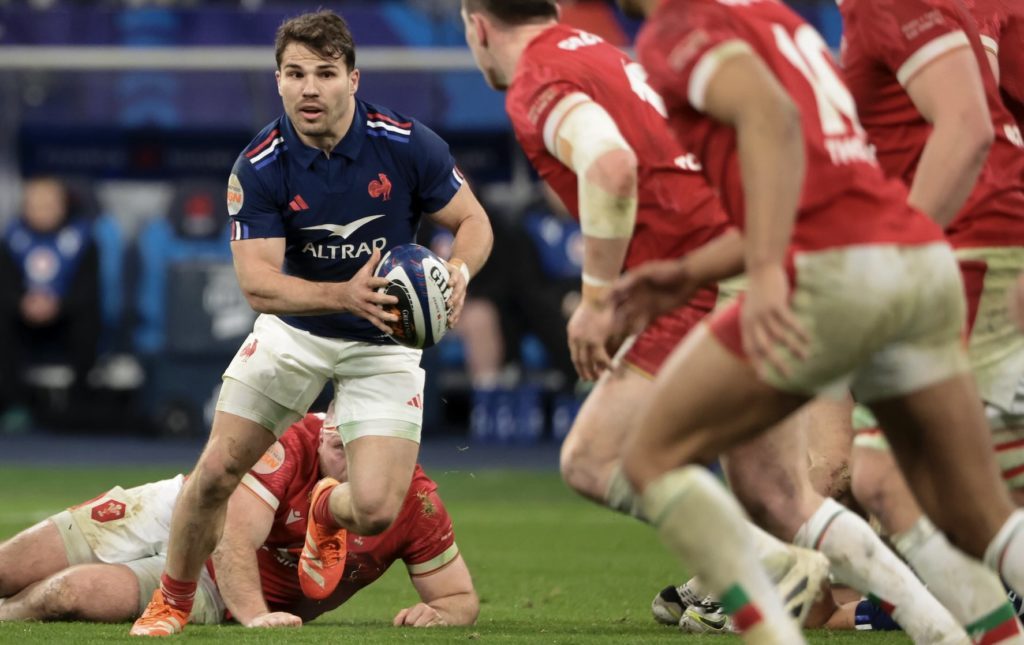
Antoine Dupont is the flex in a fantastic French match 23 that will be too powerful for Ireland in Paris in the Six Nations season opener.
Dupont alters the physics of the contest, and he adds an extra layer of muscle, authority and inevitability to a side already designed to win Test matches through force. His long injury absence is irrelevant now. What matters is what he brings back with him, and that is control, collision dominance and an edge.
Dupont is the best scrumhalf in the world and he he is the national team’s talisman.
But it is up front where all the work will be done for Dupont to play conductor. France’s selection confirm intent and physicality. It is a pack chosen for confrontation.
Jean-Baptiste Gros, Julien Marchand and Dorian Aldegheri are a front row built to scrum, carry and squeeze the life out of opponents, while locks Charles Ollivon and Mickaël Guillard bring physical presence, aerial dominance and edge in the tight exchanges. The back row of François Cros, Oscar Jegou and Anthony Jelonch are physically relentless and they feed off collisions.
This is a French pack that creates the tempo and then Dupont determines the range of this tempo.
Ireland’s pack has peaked and France coach Fabian Galthie would have studied their capitulation to world champions South Africa in Dublin last November. The Boks destroyed Ireland in the scrums and the collisions.
Props Thomas Clarkson and Jeremy Loughman face an enormous examination against Gros and Aldegheri, and if Ireland concede scrum dominance, their entire game model collapses because it is built on control, rhythm and precision rather than chaos.
The French halfback pairing only amplifies that threat. Matthieu Jalibert plays flatter and faster than the Ireland flyhalves of recent seasons, and Dupont’s presence ensures defenders are constantly torn between folding around the ruck or drifting early, a dilemma that France exploit ruthlessly.
Ireland’s continued struggle to replace the authority and game management of Johnny Sexton remains an issue. Sam Prendergast is a talent, but opening a Six Nations campaign in Paris against this French pack is a brutal assignment, and he will be targeted physically and mentally.
ALL THE 2026 SIX NATIONS FIXTURES
The Irish backline, stripped of key personnel, looks noticeably less imposing as a unit. Without Hugo Keenan at fullback, without the aerial pressure and edge of Mack Hansen and James Lowe on the wings, and without the direct power of Bundee Aki at inside centre, Ireland lack the punch that previously allowed them to play beyond the gain line.
France, by contrast, look balanced and settled, with Thomas Ramos offering control and goal-kicking, Louis Bielle-Biarrey providing genuine pace, and Jalibert bringing attacking ambition, supported by centres and wings comfortable in a collision-heavy Test.
Add the significance of the Stade de France on opening night, where French energy multiplies and visiting teams feel pressure accumulate with every lost carry and every retreating scrum, and the advantage tilts decisively towards the hosts. When France dominate the gain line and Dupont starts probing around fatigued forwards, Ireland will be forced to chase a game they are no longer structurally equipped to chase.
This is not about flair or reputation, it is about force, physical authority and control, and France hold the upper hand in the pack, at scrumhalf, off the bench and in the stands.
Just as they did in last season’s match-up in Dublin, which they won comfortably 42-27, having led 42-15 with five minutes to play.
AFRICA PICKS: ALL YOU NEED TO KNOW FOR YOUR FRANCE V IRELAND BETTING
My call: France 33 Ireland 22.
KEO News Wire
JP Pietersen & his street-smart Sharks school stuttering Stormers
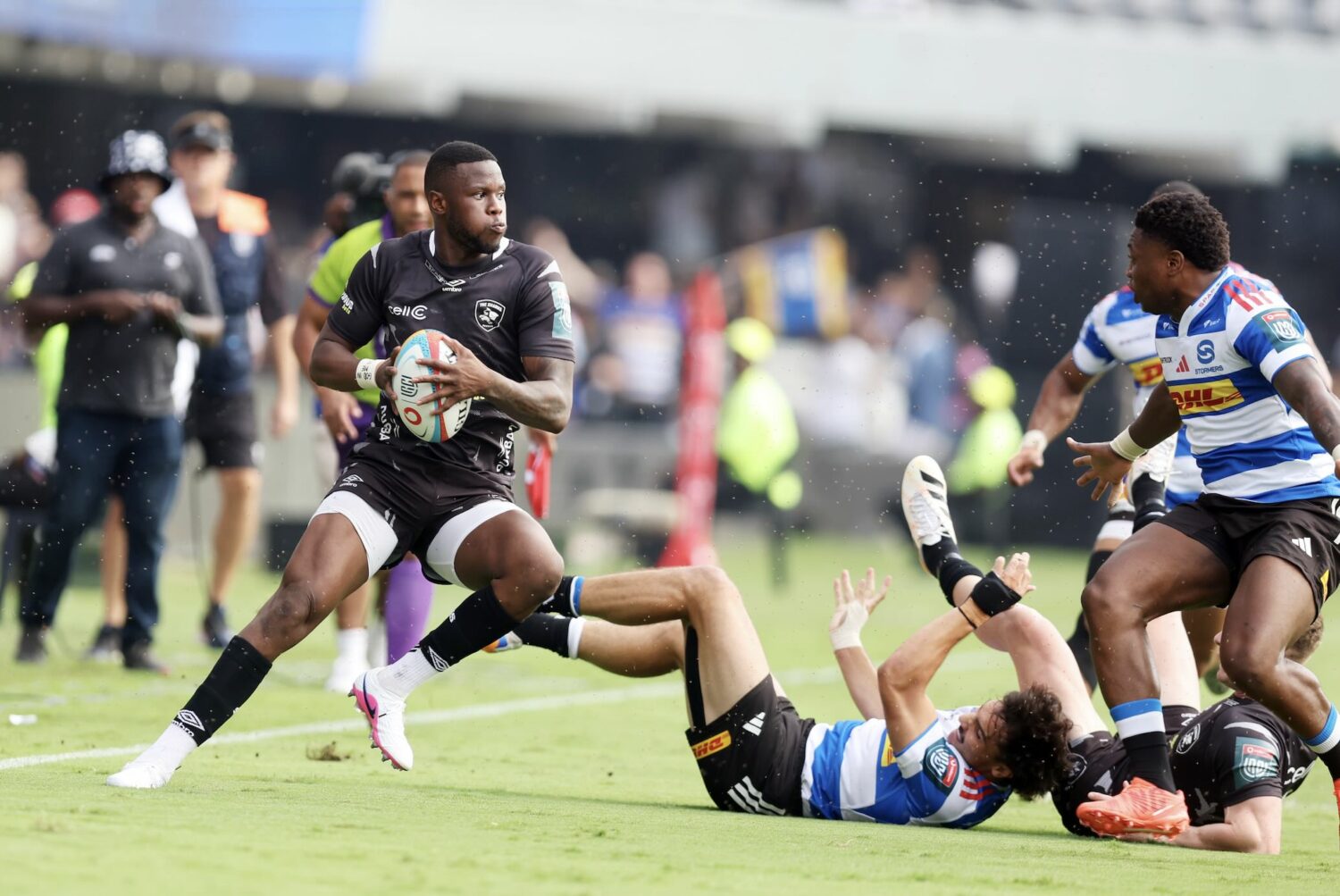
Give JP Pietersen the Sharks job and let him get on with it. He is not an interim measure. In the past fortnight he has done the double on the Stormers, and done it emphatically.
Pietersen, a presence of power and precision on the right wing in the Springboks 2007 Rugby World Cup title win in France, was given the Sharks head coaching job six weeks ago.
In that period, his team, so subdued and absent in the Investec Champions Cup and first eight rounds of the URC, have won four from five matches in all competitions. They have beaten Saracens in Durban in the Investec Champions Cup, hammered a makeshift Clermont and done the double over a Stormers team in the URC that had not lost in the league in eight matches.
Pietersen’s Sharks won 30-19 in Cape Town a week ago, having led 30-12 until the final minute, and in Durban a week later the 36-24 win was as emphatic.
The Stormers, pre the Sharks double header, were lauded for their attack and defensive structures. But they were outscored nine tries to five over 160 minutes, dominated in most facets, physically second to the Sharks in the moments that mattered and in the close exchanges, outthought, outplayed and out passioned.
In Cape Town too many suggested the Stormers were done a dirty by the referee. Already I am seeing a similar narrative on social media. Regardless, of the critique of match officials the Sharks won and the Stormers lost because over two Saturdays the Sharks were the better team, in game management, and in execution.
Pietersen has transformed the attitude of the squad. It is as much a compliment to the World Cup-winning wing, as it is an indictment on the situation under John Plumtree. These are the same players, but they look like two very different teams, coached by two very different individuals.
Pietersen’s decision to appoint Andre Esterhuizen as his captain, on the player’s 100th match, has proved inspirational. Esterhuizen has led and those around him have followed.
Individuals, so good for the Springboks, have played with the same intent and authority for the Sharks in the past fortnight,
Springboks, in the Sharks line-up, have played like current Springboks. The opposite has been true of the Stormers, who have looked fatigued, flat, confused in game plan, and in desperate need of a fortnight away from the game.
The Stormers have earned the right to drop a game or two because of a stunning eight successive wins in the league, but the nature of the back-to-back defeats can’t be ignored, which is disappointing.
The ill-discipline of Cape Town’s defeat continued in Durban. Two yellow cards in Cape Town and two in Durban. Repeated infringements, an inability to defend the Sharks line out maul, second in the collisions and second in most things.
The Stormers started the derby double header unbeaten and in 1st place. The Sharks were two wins from eight and in 14th. You would never have guessed that watching the 160 minutes.
There can be no argument from Stormers supporters. The Sharks did them, in the coaching game of chess, and on the field where the chess masters are the players.
Esterhuizen was supreme, Ethan Hooker was as strong, young Jaco Williams on the wing played like he had been there for a decade and No 9s Grant Williams and Jaden Hendrikse combined for the perfect package over 80 minutes. Williams plays with tempo and Hendrikse, when switched on, plays with poise.
The aerial battle was one-sided, in Cape Town and in Durban. This was a strength of the Stormers early season, but they couldn’t catch a high ball, even when gift wrapped with sticky gloves. The Sharks, in kick and chase, were superb.
The Sharks played like a team knowing every limitation and every strength. The Stormers continued to play like a team convinced they only have strengths.
Piestersen’s perspective has been refreshing, both in Cape Town and in Durban.
There has been a realism about him and his Sharks in the past fortnight and crazily there has been more romance than realism from a team that a month ago had not lost a game in any competition.
The Sharks head into the February break with one defeat from their last four matches, and the Stormers put their heads to a pillow with one win in their last four matches.
It makes for the most intriguing of returns in the latter part of February, when the URC resumes.
DOBBO AND SACHA RUE ILL-DISCIPLINE
ALL THE TEAMS AND MATCH-UPS FROM URC ROUND 11
KEO News Wire
Ackerman’s rampant Bulls go on the charge against Lions
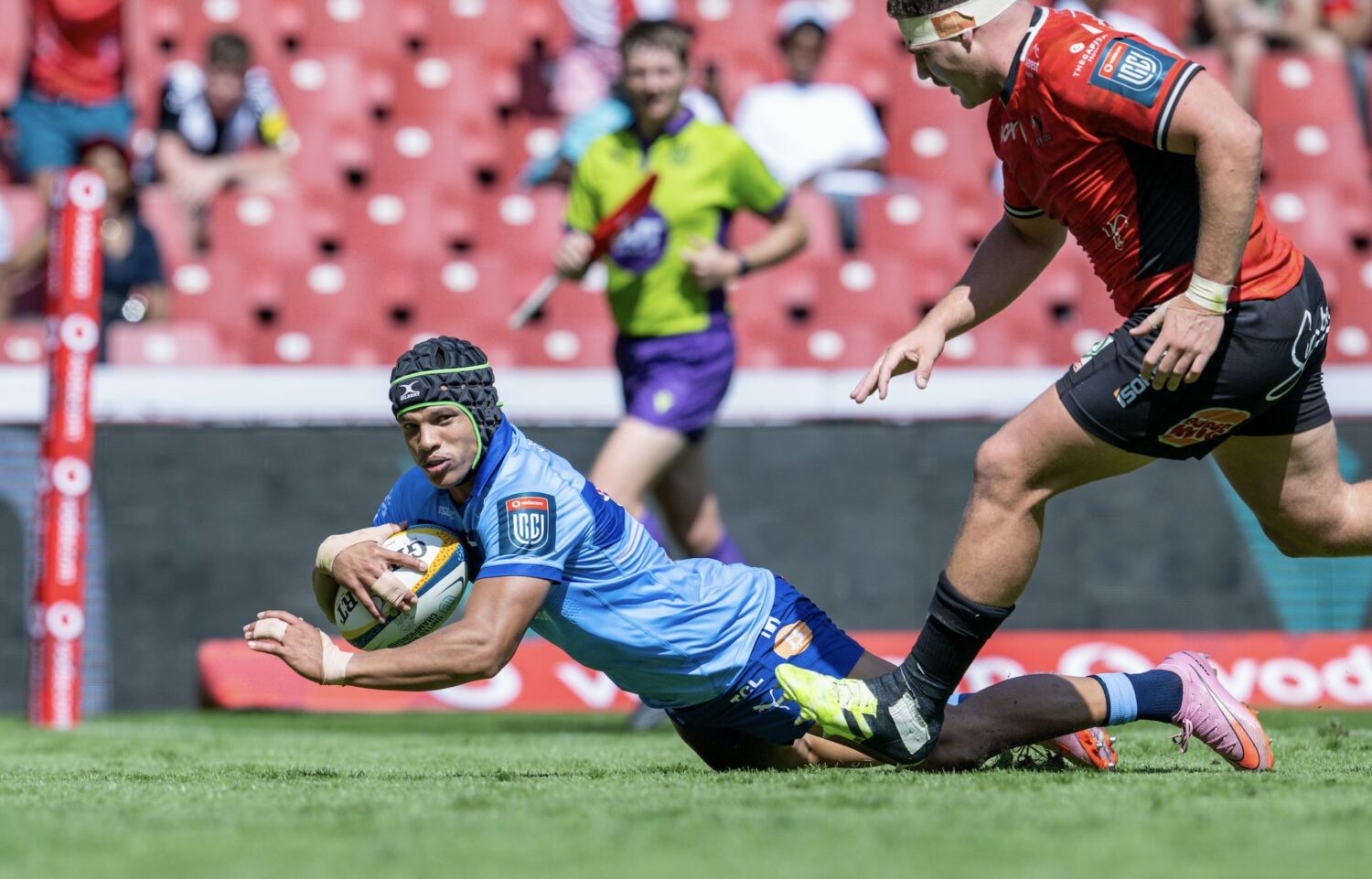
These are Johann Ackerman’s Bulls. Strong, physical, brave, enthusiastic, desperate and rugby intelligent. The Bulls who demolished the Lions 52-17 at Ellis Park in the Vodacom United Rugby Championship are the Bulls that have taken 14 matches in all competitions to confirm their 2025/26 season’s arrival.
The Bulls were so different, in every positive way, to the team playing a month ago.
They lost seven in a row in all competitions and were conceding on average 40 points a match and four-tries before half-time.
At Ellis Park, they kept the Lions scoreless for 40 minutes, conceded a try in the 45th minute and then coughed up one after the final whistle. In between they scored eight tries and dominated every facet.
They were very good in winning their third successive match on the road, in three different countries, after the horror run of seven defeats on the trot.
Ackerman once coached the Lions. They made two successive Super Rugby finals, hosting the Crusaders in the first one. He turned the Lions from a circus act into a national geographic documentary on why Lions should be respected.
It has taken two months longer than most thought, but now he is righting the wrongs of a Bulls team whose performances were a betrayal to the club’s history.
On Saturday, in the toughest of environments, a South African northern derby, the Bulls sent a message to every team in the league and to Glasgow, who they play in Glasgow in the Investec Champions Cup last 16 in April, that something has changed.
The bully boys in blue are back. Gone are the try-conceding fans of a freebie.
This is what Johan Ackermann has changed, as reflected in the post match reporting in South Africa.
1) The set-piece stopped being “a phase” and became a weapon
The Bulls earned the right to play, and it was not the Instagram version. This was real: scrum, lineout, maul threat, and then the carry pattern that forces defenders to make choices they don’t want to make. The tries were from repeat pressure and the Lions folding.
2) Discipline = possession that actually means something
“70% possession” is a dead stat if you hand it back with penalties, cheap turnovers and panic decisions. The Bulls didn’t. They played in the right areas early, squeezed the Lions, and were already out of sight at 26-3 at half-time. That’s control.
3) Defensive desire: no freebies and no soft shoulders
This was a Bulls attitude day more than a carnival all out attack day. This was 50 points scored because the pillars were bricks and not a hope for dodging quick sand areas at Ellis Park. The Bulls’ defensive work-rate and collision presence killed any Lions second half comeback prospects.
4) Carry, carry, carry… then strikes
This is the most important part: the Bulls’ attack looked better because the forwards made it simpler for everyone else. Hard carries, post-contact wins, and forward pods doing honest work so the backs don’t have to manufacture miracles from standing starts 20 metres beyond the gain line. This had Ackerman’s paw prints all over it.
5) Handre Pollard ran the game like a double World Cup winner
Pollard has been more accurate in games, but he played with presence and authority. With a functioning pack, led by a back three of Marcell Coetzee, Elrigh Louw and Jeandre Rudolph, Pollard played with the comfort of front foot ball and, outside of him, inside centre Harold Vorster looked like a teenager in his impact and enthusiasm.
WATCH: Keo and Zels on the Lions v Bulls
Scorers
Lions 17
-
Tries: Morne van den Berg, Bronson Mills
-
Conversions: Chris Smith (2)
-
Penalty: Chris Smith
Bulls 52
-
Tries: Harold Vorster (2), Johan Grobbelaar, Handré Pollard, Kurt-Lee Arendse, Embrose Papier, Mpilo Gumede, Keagan Johannes
-
Conversions: Pollard (5), Johannes
International Rugby
URC ROUND 11 – ALL YOU NEED TO KNOW
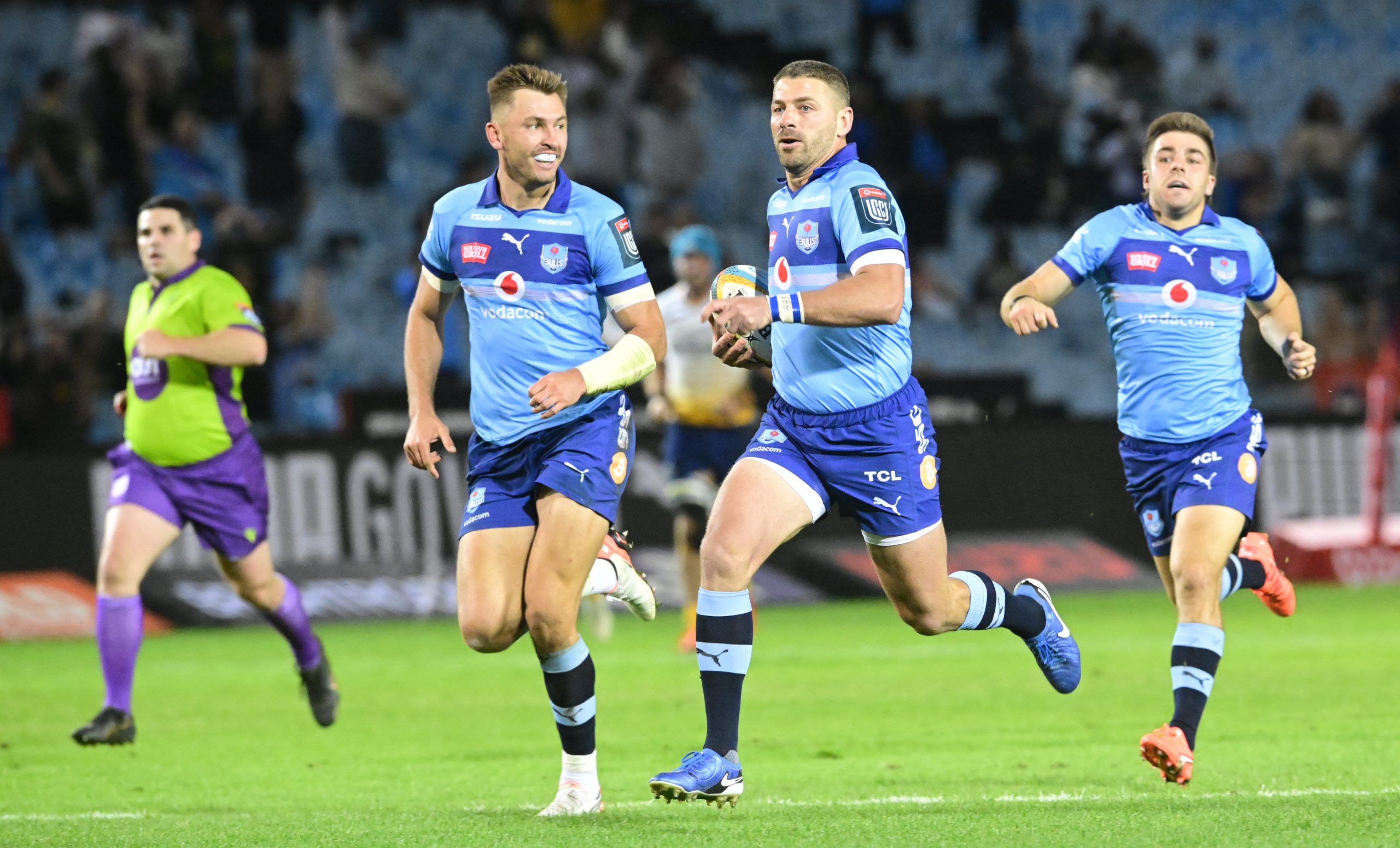
The Sharks host the Stormers in one of two South African URC derbies to end the first half of the league season. The Lions are at home to the Bulls in the northern derby. Here’s everything you need to know for the weekend’s Round 11 showdowns.
The South African teams have all chosen the best available squads in the last Saturday of the month and the last Saturday of URC action until the league resumes in the last weekend of February.
The Six Nations takes priority in February, with the first three rounds played before the URC starts up again for the last eight league matches and the play-offs.
The Stormers, beaten for the first time in the league last Saturday, get the chance of redemption in Durban. It was the Sharks who beat them in Cape Town. The same is true of the Lions and Bulls derby. The Lions earlier in the league, won at Loftus Versfeld in Pretoria.
Several of the Northern Hemisphere clubs are severely understrength for Round 11, as the leading current internationals have been in camp with their respective national teams preparing for next weekend’s Six Nations opening round.
It makes for a punter’s nightmare in these matches because the form guide is not a measurement with so many frontline players missing.
WATCH: KEO & ZELS ON SHARKS, STORMERS, LIONS & BULLS
AFRICA PICKS RUGBY: Keo calls the South African derbies
|
#BENvSCA
#GLAvMUN
#LIOvBUL
#SHAvSTO
#ZEBvCON
#LEIvEDI
#OSPvDRA
#ULSvCAR
|
|
FRIDAY, JANUARY 30 Benetton v Scarlets Stadio Monigo, Treviso – KO 19.45 IRE & UK / 20.45 ITA / 21.45 SA Referee: Andrew Brace (IRFU, 113th league game) AR 1: Clara Munarini (FIR) AR 2: Bisetto Luca (FIR) TMO: Olly Hodges (IRFU) Live on: Sky Italia, S4C, Premier Sports, SuperSport, Flo Rugby & URC.tv Benetton: Rhyno Smith, Ignacio Mendy, Paolo Odogwu, Malakai Fekitoa, Onisi Ratave, Nicolas Roger Farias, Andy Uren (CAPT), Thomas Gallo, Siua Maile, Marcos Gallorini, Giulio Marini, Eli Snyman, Alessandro Izekor, Jadin Kingi, So’otala Fa’aso’o Replacements: Bautista Bernasconi, Destiny Aminu, Tiziano Pasquali, Scott Scrafton, Nelson Casartelli, Alessandro Garbisi, Matt Gallagher, Filippo Drago
Scarlets: Jac Davies, Macs Page, Joe Roberts, Johnny Williams (CAPT), Tomi Lewis; Carwyn Leggatt-Jones, Gareth Davies, Alec Hepburn, Marnus van der Merwe, Archer Holz, Jac Price, Sam Lousi, Max Douglas, Jarrod Taylor, Fletcher Anderson Replacements: Harry Thomas, Josh Morse, Henry Thomas, Jake Ball, Dan Davis, Dane Blacker, Billy McBryde, Iori Badham Benetton Head Coach Calum MacRae said: “Scarlets are one of the Vodacom URC teams that uses the kicking game the most and builds their opportunities through territorial control. The aerial game is an area we definitely need to improve”
Scarlets Interim Director of Rugby Nigel Davies said: “We have looked at these Vodacom URC games, Ulster and Benetton, as a two-game series and it’s important we back up last weekend’s win – we’ve done the first bit, now our focus is on another massive game. “Benetton have recruited well, are coached well and play a good brand of rugby. Like us, they have players missing but will still be very strong. We have selected a side with a lot of talented young players who I am excited to see step up to the challenge on Friday night.” Glasgow Warriors v Munster Rugby Scotstoun Stadium, Glasgow – KO 19.45 IRE & UK / 20.45 ITA / 21.45 SA Referee: Craig Evans (WRU, 72nd league game) AR 1: Ian Kenny (SRU) AR 2: David Sutherland (SRU) TMO: Adam Jones (WRU) Live on: Premier Sports, TG4, SuperSport, Flo Rugby & URC.tv Glasgow Warriors: Josh McKay, Kyle Rowe, Stafford McDowall (CAPT), Kerr Yule, Ollie Smith, Dan Lancaster, Ben Afshar, Jamie Bhatti, Seb Stephen, Murphy Walker, Alex Craig, Jare Oguntibeju, Euan Ferrie, Angus Fraser, Ally Miller Replacements: Grant Stewart, Nathan McBeth, Sam Talakai, Dylan Cockburn, Sione Vailanu, Macenzzie Duncan, Jack Oliver, Matthew Urwin
Munster Rugby: Mike Haley, Thaakir Abrahams, Shane Daly, Dan Kelly, Diarmuid Kilgallen, Tony Butler, Ethan Coughlan, Josh Wycherley, Diarmuid Barron (CAPT), Oli Jager, Evan O’Connell, Fineen Wycherley, Seán Edogbo, Ruadhán Quinn, Brian Gleeson Replacements: Lee Barron, Mark Donnelly, John Ryan, Gavin Coombes, Jack O’Donoghue, Paddy Patterson, Tom Wood, Seán O’Brien Glasgow Warriors Head Coach Franco Smith said: “We are looking forward to seeing our full squad involved this weekend, with everyone eager to finish this block in the right manner.”
“Munster are a proud club with a strong heritage of challenging across all competitions – they will be pushing for the top four once again this season and will bring a strong, physical challenge tomorrow night. “Everyone is looking forward to the test that lies ahead, and running out in front of what’s set to be another sold out Scotstoun.”
|
| SATURDAY, JANUARY 31
Lions v Vodacom Bulls Ellis Park, Johannesburg – KO 12.30 IRE & UK / 13.30 ITA / 14.30 SA Referee: Morne Ferreira (SARU, 20th league game) AR 1: Hanru van Rooyen (SARU) AR 2: Sean Muller (SARU) TMO: Egon Seconds (SARU) Live on: SuperSport, Premier Sports, Flo Rugby & URC.tv Lions: Quan Horn, Angelo Davids, Henco van Wyk, Bronson Mills, Richard Kriel, Chris Smith, Morne van den Berg, SJ Kotze, PJ Botha, Asenathi Ntlabakanye, Ruben Schoeman, Reinhard Nothnagel, Jarod Cairns, Batho Hlekani, Francke Horn (CAPT) Replacements: Morne Brandon, RF Schoeman, Conraad van Vuuren, Etienne Oosthuizen, Darrien Landsberg, Renzo du Plessis, Haashim Pead, Erich Cronje Vodacom Bulls: Devon Williams, Stravino Jacobs, Stedman Gans, Harold Vorster, Kurt-Lee Arendse, Handre Pollard, Embrose Papier, Jan-Hendrik Wessels, Johan Grobbelaar, Wilco Louw, Ruan Vermaak, Reinhardt Ludwig, Marcell Coetzee (CAPT), Elrich Louw, Jeandre Rudolph Replacements: Marco van Staden, Alu Tshakweni, Mornay Smith, Cobus Wiese, Mpilo Gumede, Nizaam Carr, Keagan Johannes, David Kriel Vodacom Bulls Head Coach Johan Ackermann said: “The DNA of the Lions of being a running team is still there, so I expect them to play a fast game at Ellis Park because it was always one of our go-to strategies when I coached there. I think it will be an entertaining game.” ANDRE THE GIANT SLAUGHTERS STORMERS IN CAPE TOWN Hollywoodbets Sharks v DHL Stormers Hollywoodbets Kings Park, Durban – KO 15.00 IRE & UK / 16.00 ITA / 17.00 SA Referee: Christopher Allison (SARU, 7th league game) AR 1: Griffin Colby (SARU) AR 2: Jonathan Lottering (SARU) TMO: Quinton Immelman (SARU) Live on: SuperSport, Premier Sports, Flo Rugby & URC.tv Hollywoodbets Sharks: Aphelele Fassi, Edwill van der Merwe, Ethan Hooker, Andre Esterhuizen (CAPT), Jaco Williams, Jordan Hendrikse, Grant Williams, Ox Nche, Fez Mbatha, Hanro Jacobs, Corne Rahl, Emile van Heerden, Siya Kolisi, Vincent Tshituka, Phepsi Buthelezi Replacements: Eduan Swart, Phatu Ganyane, Vincent Koch, Jason Jenkins, Nick Hatton, Jaden Hendrikse, Siya Masuku, Jurenzo Julius DHL Stormers: Damian Willemse, Dylan Maart, Wandisile Simelane, Jonathan Roche, Leolin Zas, Sacha Feinberg-Mngomezulu (CAPT), Cobus Reinach, Oli Kebble, André-Hugo Venter, Neethling Fouché, Adré Smith, Ruben van Heerden, Paul de Villiers, Ben-Jason Dixon, Evan Roos Replacements: JJ Kotzé, Ntuthuko Mchunu, Zachary Porthen, JD Schickerling, Marcel Theunissen, Stefan Ungerer, Jurie Matthee, Warrick Gelant Zebre Parma v Connacht Rugby Stadio Lanfranchi, Parma – KO 15.00 IRE & UK / 16.00 ITA / 17.00 SA Referee: Ben Whitehouse (WRU, 113th league game) AR 1: Fillipo Russo (FIR) AR 2: Lorenzo Pedezzi (FIR) TMO: Keith David (WRU) Live on: Sky Italia, TG4, Premier Sports, SuperSport, Flo Rugby & URC.tv Zebre Parma: Giovanni Montemauri, Mirko Belloni, Giulio Bertaccini, Marco Zanon, Simone Gesi, Martin Roger Farias, Gonzalo Garcia, Paolo Buonfiglio, Giampietro Ribaldi, Enrique Pieretto, Matteo Canali, Leonard Krumov (CAPT), Giacomo Ferrari, Iacopo Bianchi, Davide Ruggeri Replacements: Shilo Klein, Luca Franceschetto, Juan Pitinari, Franco Carrera, Alessandro Ortombina, Thomas Dominguez, Enrico Lucchin, Bautista Stavile Connacht Rugby: Sam Gilbert, Shane Jennings, Harry West, Cathal Forde, Chay Mullins, Josh Ioane, Caolin Blade, Jordan Duggan, Dylan Tierney-Martin, Jack Aungier, Josh Murphy, Joe Joyce, Paul Boyle (CAPT), Sean O’Brien, Sean Jansen Replacements: Matthew Victory, Peter Dooley, Fiachna Barrett, David O’Connor, Niall Murray, Ben Murphy, Sean Naughton, Oisín McCormack Connacht Rugby Head Coach Stuart Lancaster said: “We were all gutted not to win last week on such a special night for the club, but we’ve had to quickly move on. The same amount of points are on offer this weekend and we know a win will keep us in the hunt for a playoff spot. We’re obviously missing the lads away on Ireland duty but overall, we’ve been able to keep selection relatively consistent these last few weeks, particularly in the backs. It’s been a long stretch of games, but we’ll do everything we can to finish it on a high and hopefully head into the next block of games with a spring in our step.”
Leinster Rugby v Edinburgh Rugby Aviva Stadium, Dublin – KO 17.30 IRE & UK / 18.30 ITA / 19.30 SA Referee: Andrea Piardi (FIR, 59th league game) AR 1: Eoghan Cross (IRFU) AR 2: Shane Gaughan (IRFU) TMO: Matteo Liperini (FIR) Live on: Premier Sports, SuperSport, Flo Rugby & URC.tv Leinster Rugby: Andrew Osborne, Joshua Kenny, Rieko Ioane, Ciarán Mangan, Ruben Moloney, Charlie Tector, Luke McGrath (CAPT), Jerry Cahir, John Mckee, Andrew Sparrow, RG Snyman, Brian Deeny, Max Deegan, Scott Penny, Diarmuid Mangan Replacements: Gus McCarthy, Alex Usanov, Niall Smyth, Conor O’Tighearnaigh, Josh Ericson, Will Connors, Fintan Gunne, Hugo McLaughlin
Edinburgh Rugby: Harry Paterson, Malelili Satala, Wes Goosen, James Lang, Duhan van der Merwe, Ross Thompson, Ben Vellacott; Boan Venter, Jerry Blyth-Lafferty, Paul Hill, Callum Hunter-Hill, Glen Young, Ben Muncaster, Freddy Douglas, Magnus Bradbury (CAPT) Replacements: Harri Morris, Mikey Jones, Ollie Blyth-Lafferty, Tom Dodd, Connor Boyle, Charlie Shiel, Cammy Scott, Piers O’Conor Leinster Rugby Assistant Coach Robin McBryde said: “Edinburgh are a pretty cohesive bunch. I think they’ll be hurting after their result last weekend. They’ll be keen to finish this block on a high as well. It’s always good to finish on a victory before any sort of break because the result sits with you. So it’ll be tough enough. We’ve just got to improve on certain aspects of the game from last Saturday and really knuckle down.” Edinburgh Rugby Head Coach Sean Everitt said: “Going away to Leinster is one of the toughest tests in the Vodacom URC, but it’s a challenge we’re ready to embrace – we’re going over there to have a real crack at it. “Magnus [Bradbury] resumes the captaincy and his experience in these big away fixtures is invaluable for the group. “We know exactly what we are capable of when we put it all together. The key for us this week is a complete 80-minute performance to get the result we want.” Ospreys v Dragons RFC Electric Brewery Field, Bridgend – KO 19.45 IRE & UK / 20.45 ITA / 21.45 SA Referee: Ben Connor (WRU, 7th league game) AR 1: Ben Breakspear (WRU) AR 2: Carwyn Sion (WRU) TMO: Jenny Davies (WRU) Live on: S4C, Premier Sports, SuperSport, Flo Rugby & URC.tv Ospreys: Iestyn Hopkins, Dan Kasende, Phil Cokanasiga, Keiran Williams, Keelan Giles, Jack Walsh (C.CAPT), Reuben Morgan-Williams, Gareth Thomas, Sam Parry (C.CAPT), Tom Botha, James Fender, Ryan Smith, James Ratti, Ross Moriarty, Morgan Morse Replacements: Lewis Lloyd, Steffan Thomas, Rhys Henry, Marco de Witt, Gwilym Evans, Cormac Foley, Max Nagy, Harri Houston Dragons RFC: Angus O’Brien (CAPT), David Richards, Fine Inisi, Aneurin Owen, Rio Dyer, Tinus de Beer, Che Hope, Wyn Jones, Brodie Coghlan, Robert Hunt, Levi Douglas, Seb Davies, Ryan Woodman, Harry Beddall, Harri Keddie Replacements: Oli Burrows, Jordan Morris, Cebo Dlamini, Shane Lewis-Hughes, Evan Minto, Rhodri Williams, Fetuli Paea, Cai Evans Dragons RFC Coach Dale MacLeod said: “Ospreys will be tough. They are a team with a big forward pack, they general start well and are tough to beat at home. “It’s exciting that all four Welsh teams are starting to put some performances together, through all the emotion going on. “They’ll be two good teams playing, I don’t think there will be much in it, and it will be about who holds their head, stays in the game, and owns the little moments. “We’re looking forward to it, they will be too, so it’s going to be a massive challenge.” Ulster Rugby v Cardiff Rugby Affidea Stadium, Belfast – KO 19.45 IRE & UK / 20.45 ITA / 21.45 SA Referee: Hollie Davidson (SRU, 26th league game) AR 1: Robbie Jenkinson (IRFU) AR 2: Sam Holt (IRFU) TMO: Mike Adamson (SRU) Live on: Premier Sports, SuperSport, Flo Rugby & URC.tv Ulster Rugby: Ethan McIlroy, Werner Kok, James Hume, Ben Carson, Zac Ward, Jack Murphy, Conor McKee, Angus Bell, Rob Herring, Scott Wilson, Iain Henderson (CAPT), Charlie Irvine, Matthew Dalton, Marcus Rea, David McCann Replacements: James McCormick, Sam Crean, Bryan O’Connor Harry Sheridan, Lorcan McLoughlin, David Shanahan, Jake Flannery, Ben Moxham Cardiff Rugby: Cam Winnett, Ioan Lloyd, Harri Millard, Steffan Emanuel, Tom Bowen, Callum Sheedy, Johan Mulder, Rhys Barratt, Evan Lloyd, Javan Sebastian, Josh McNally (CAPT), George Nott, Alun Lawrence, Dan Thomas, Taine Basham Replacements: Daf Hughes, Danny Southworth, Joe Cowell, Rory Thornton, Lucas de la Rua, Aled Davies, Elijah Evans, Leigh Halfpenny Cardiff Rugby Coach Corniel van Zyl said: “There’s a real excitement about going up to Belfast and putting in a good performance. That’s been the big aim for the week. “Like every club at this stage of the season, we’re in the same boat. We are missing players to the international game, and it tests our squad. But it is an opportunity and that’s how we’re treating it. “What we’ve seen from Ulster is a team that’s very good at keeping the ball in hand and moving the point of contact. We’ll have to be very good defensively to stay in front of them and keep them out. “They’re very potent in the 22. They’re probably one of the top teams for points scored per entry, so we’ll have to be smart around that.” |
-
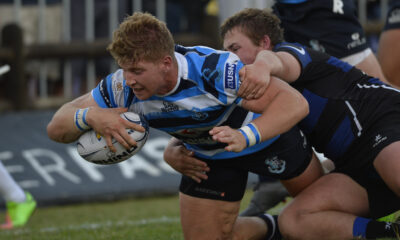
 KEO News Wire3 days ago
KEO News Wire3 days agoSouth Africa’s State of Origin – our Schools system works
-

 International Rugby6 days ago
International Rugby6 days agoURC: Julius stars but the Lions roar loudest at Ellis Park
-

 International Rugby6 days ago
International Rugby6 days agoIreland find their identity & Scotland find a way to win away from home
-

 International Rugby2 days ago
International Rugby2 days agoBok Damian de Allende is the best No 12 in the world





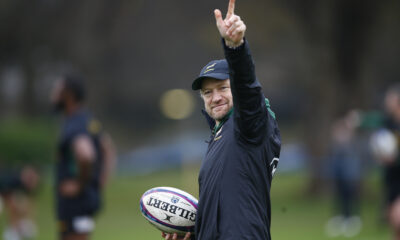

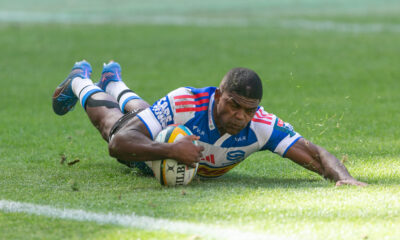



🍒💦 Adult Dating. Let's Go >> yandex.com/poll/LZW8GPQdJg3xe5C7gt95bD?hs=2e0cfb672f301793429147f31d563871& ticket # 8529 🍒💦
5th December 2025 at 10:44 pm
t7rf6g
Irvin Horvath
16th December 2025 at 12:02 pm
Wow! Thank you! I continually needed to write on my site something like that. Can I implement a fragment of your post to my blog?
fdertol mrtokev
18th December 2025 at 9:54 pm
My wife and i ended up being really more than happy when Albert managed to finish off his investigations because of the precious recommendations he grabbed when using the blog. It’s not at all simplistic just to happen to be giving freely instructions that many some other people have been making money from. And we all see we’ve got you to thank for that. Most of the illustrations you have made, the straightforward blog menu, the relationships you will aid to create – it’s many terrific, and it is assisting our son in addition to our family do think that situation is interesting, which is certainly quite important. Many thanks for all the pieces!
hoteles en pamplona cerca del hospital universitario
30th December 2025 at 11:56 pm
Good ?V I should definitely pronounce, impressed with your website. I had no trouble navigating through all the tabs and related info ended up being truly easy to do to access. I recently found what I hoped for before you know it in the least. Quite unusual. Is likely to appreciate it for those who add forums or anything, website theme . a tones way for your client to communicate. Excellent task..
casas en José Ignacio
31st December 2025 at 1:42 am
Hmm it seems like your site ate my first comment (it was extremely long) so I guess I’ll just sum it up what I submitted and say, I’m thoroughly enjoying your blog. I as well am an aspiring blog blogger but I’m still new to the whole thing. Do you have any points for beginner blog writers? I’d certainly appreciate it.
live hockey streaming
12th January 2026 at 5:24 pm
Thank you for some other informative web site. Where else may I get that type of info written in such an ideal way? I have a project that I am just now operating on, and I have been at the glance out for such info.
live uefa champions league streaming
13th January 2026 at 8:13 am
Saved as a favorite, I really like your blog!
watch uefa champions league online
13th January 2026 at 11:37 am
I really enjoy studying on this site, it holds wonderful posts. “Something unpredictable but in the end it’s right, I hope you have the time of your life.” by Greenday.
watch euroleague online
13th January 2026 at 2:07 pm
Hello there, just was alert to your weblog through Google, and located that it is truly informative. I am gonna watch out for brussels. I will appreciate if you happen to proceed this in future. Numerous people will probably be benefited from your writing. Cheers!
live cfl stream
13th January 2026 at 9:28 pm
Once I initially commented I clicked the -Notify me when new comments are added- checkbox and now every time a comment is added I get 4 emails with the identical comment. Is there any way you can remove me from that service? Thanks!
nhl streams
13th January 2026 at 11:26 pm
Thanx for the effort, keep up the good work Great work, I am going to start a small Blog Engine course work using your site I hope you enjoy blogging with the popular BlogEngine.net.Thethoughts you express are really awesome. Hope you will right some more posts.
rateio pra concurso
14th January 2026 at 2:34 am
Wow, awesome weblog layout! How long have you been running a blog for? you made running a blog look easy. The entire look of your site is fantastic, let alone the content material!
stream live sports events qatar
14th January 2026 at 5:19 am
You completed a few nice points there. I did a search on the issue and found a good number of folks will consent with your blog.
kedai bateri kereta near me
14th January 2026 at 5:52 pm
Thank you a bunch for sharing this with all of us you really recognize what you are talking about! Bookmarked. Please also talk over with my site =). We may have a link alternate contract between us!
supercar rental malaysia
14th January 2026 at 11:10 pm
Simply wish to say your article is as astonishing. The clarity in your post is just spectacular and i could assume you are an expert on this subject. Well with your permission let me to grab your RSS feed to keep updated with forthcoming post. Thanks a million and please keep up the rewarding work.
buquê de flores boa viagem recife
15th January 2026 at 8:05 am
Thank you for the auspicious writeup. It in truth was once a entertainment account it. Glance complicated to far delivered agreeable from you! By the way, how could we keep up a correspondence?
gullybet games
15th January 2026 at 10:14 am
I simply could not depart your site before suggesting that I actually enjoyed the standard information an individual provide for your guests? Is gonna be back incessantly in order to inspect new posts.
kuala lumpur airport transfer
15th January 2026 at 3:32 pm
Hey, you used to write excellent, but the last few posts have been kinda boring… I miss your great writings. Past several posts are just a little out of track! come on!
airmatic Malaysia
15th January 2026 at 11:55 pm
This website online is known as a walk-by for all the information you wished about this and didn’t know who to ask. Glimpse here, and also you’ll positively uncover it.
tlover tonet
16th January 2026 at 9:52 am
Howdy would you mind letting me know which hosting company you’re utilizing? I’ve loaded your blog in 3 different browsers and I must say this blog loads a lot quicker then most. Can you recommend a good web hosting provider at a honest price? Thanks a lot, I appreciate it!
kilat333
16th January 2026 at 11:13 am
I am continuously looking online for articles that can help me. Thx!
kilat333
16th January 2026 at 6:25 pm
I’m really impressed with your writing skills and also with the layout in your weblog. Is that this a paid subject matter or did you modify it yourself? Anyway keep up the excellent high quality writing, it’s rare to look a great weblog like this one today..
visual studio code plugin
16th January 2026 at 10:35 pm
I have learn a few excellent stuff here. Definitely value bookmarking for revisiting. I surprise how much attempt you put to make such a excellent informative site.
backdrop banner
17th January 2026 at 3:50 am
There is evidently a bundle to identify about this. I think you made some nice points in features also.
miototo
17th January 2026 at 8:21 am
Hey! I could have sworn I’ve been to this site before but after checking through some of the post I realized it’s new to me. Anyhow, I’m definitely delighted I found it and I’ll be bookmarking and checking back often!
https://dkwinapp.com
17th January 2026 at 7:03 pm
I haven’t checked in here for some time since I thought it was getting boring, but the last several posts are great quality so I guess I will add you back to my daily bloglist. You deserve it my friend 🙂
neurodyne
18th January 2026 at 12:05 am
whoah this blog is great i like studying your posts. Keep up the great work! You recognize, a lot of persons are looking round for this info, you could help them greatly.
neurosharp review
18th January 2026 at 12:37 pm
Usually I do not learn post on blogs, however I wish to say that this write-up very compelled me to take a look at and do it! Your writing style has been amazed me. Thank you, very nice post.
pink salt trick
18th January 2026 at 4:14 pm
It’s hard to find knowledgeable people on this topic, but you sound like you know what you’re talking about! Thanks
gelatin trick recipe
18th January 2026 at 4:49 pm
Hi, Neat post. There’s a problem with your site in internet explorer, would test this… IE still is the market leader and a huge portion of people will miss your wonderful writing due to this problem.
gelatin trick
18th January 2026 at 8:19 pm
You actually make it seem so easy with your presentation but I find this matter to be really something which I think I would never understand. It seems too complex and very broad for me. I’m looking forward for your next post, I will try to get the hang of it!
pcxwin
18th January 2026 at 10:04 pm
Thank you for sharing with us, I think this website truly stands out : D.
royal138
19th January 2026 at 4:23 am
Hi my friend! I want to say that this article is awesome, nice written and include approximately all important infos. I’d like to see more posts like this.
gelatin trick for weight loss
19th January 2026 at 4:46 am
When I originally commented I clicked the -Notify me when new comments are added- checkbox and now each time a comment is added I get four emails with the same comment. Is there any way you can remove me from that service? Thanks!
kilat333 link
19th January 2026 at 12:37 pm
Your place is valueble for me. Thanks!…
ladang88 daftar
19th January 2026 at 2:45 pm
Would you be concerned with exchanging hyperlinks?
lgopro99
19th January 2026 at 9:13 pm
Very interesting details you have observed, thanks for posting. “Ignorance, the root and the stem of every evil.” by Plato.
agen togel online
20th January 2026 at 2:57 am
You are my inspiration , I have few blogs and often run out from to brand.
lgopro99
20th January 2026 at 3:00 am
Can I simply say what a reduction to find someone who really is aware of what theyre speaking about on the internet. You definitely know how one can deliver a difficulty to light and make it important. More folks have to read this and perceive this side of the story. I cant imagine youre no more in style since you positively have the gift.
top up royal dream
20th January 2026 at 9:48 am
I always was interested in this subject and stock still am, appreciate it for posting.
🍑 Dating for sex. Send 🔗 yandex.com/poll/43o224okZdReGRb1Q8PXXJ?hs=2e0cfb672f301793429147f31d563871& Issue # HEGH8628973 🍑
21st January 2026 at 1:00 am
8uxvo0
citrusburn review
21st January 2026 at 10:54 am
Excellent beat ! I wish to apprentice even as you amend your site, how can i subscribe for a blog site? The account helped me a appropriate deal. I have been tiny bit familiar of this your broadcast provided vibrant clear idea
zaborna torilon
21st January 2026 at 12:46 pm
Hello. Great job. I did not anticipate this. This is a excellent story. Thanks!
citrus burn
21st January 2026 at 2:21 pm
Thanks for sharing superb informations. Your web site is so cool. I am impressed by the details that you have on this web site. It reveals how nicely you understand this subject. Bookmarked this web page, will come back for more articles. You, my friend, ROCK! I found just the information I already searched everywhere and just couldn’t come across. What a great web-site.
optivell
22nd January 2026 at 2:37 am
I as well believe so , perfectly written post! .
best electric razor
22nd January 2026 at 12:23 pm
This is a topic close to my heart cheers, where are your contact details though?
toilet cleaning foam
22nd January 2026 at 6:15 pm
But a smiling visitant here to share the love (:, btw outstanding layout.
สล็อตวอเลท
23rd January 2026 at 5:12 am
F*ckin’ remarkable things here. I’m very glad to see your post. Thanks a lot and i’m looking forward to contact you. Will you please drop me a mail?
flixy tv stick review
23rd January 2026 at 9:45 am
Thank you for some other great article. The place else may anybody get that type of info in such an ideal means of writing? I have a presentation next week, and I am at the search for such information.
nuro clean mold remover gel
23rd January 2026 at 4:44 pm
Really great information can be found on site. “Every artist was first an amateur.” by Ralph Waldo Emerson.
lk21
24th January 2026 at 12:12 am
Loving the information on this internet site, you have done great job on the blog posts.
wellaheat socks review
24th January 2026 at 2:17 am
Heya i’m for the first time here. I found this board and I find It truly useful & it helped me out much. I hope to give something back and help others like you helped me.
wellaheat heated socks
24th January 2026 at 5:51 am
I truly appreciate your piece of work, Great post.
wuffy robot puppy
24th January 2026 at 9:22 am
I conceive this website holds some real wonderful information for everyone :D. “The public will believe anything, so long as it is not founded on truth.” by Edith Sitwell.
Copa Joias
24th January 2026 at 12:55 pm
Thanks for sharing superb informations. Your web site is so cool. I’m impressed by the details that you have on this web site. It reveals how nicely you understand this subject. Bookmarked this web page, will come back for extra articles. You, my friend, ROCK! I found simply the info I already searched everywhere and simply could not come across. What an ideal website.
wuffy robot puppy
24th January 2026 at 2:00 pm
Only wanna comment on few general things, The website layout is perfect, the written content is really good : D.
wuffy robot puppy
24th January 2026 at 5:08 pm
Greetings! I’ve been reading your web site for a long time now and finally got the courage to go ahead and give you a shout out from Huffman Tx! Just wanted to say keep up the fantastic work!
kilat333
24th January 2026 at 8:43 pm
Some genuinely fantastic information, Glad I observed this. “It’s amazing what ordinary people can do if they set out without preconceived notions.” by Charles Franklin Kettering.
What to read on the dec page
25th January 2026 at 12:41 am
You really make it appear so easy together with your presentation however I in finding this topic to be really one thing that I believe I’d by no means understand. It sort of feels too complex and very wide for me. I’m taking a look forward on your next post, I¦ll attempt to get the dangle of it!
kilat333
25th January 2026 at 4:10 am
excellent points altogether, you simply gained a new reader. What would you recommend about your post that you made a few days ago? Any positive?
cs gratis
25th January 2026 at 2:12 pm
I would like to thnkx for the efforts you’ve put in writing this website. I’m hoping the same high-grade web site post from you in the upcoming as well. In fact your creative writing abilities has encouraged me to get my own blog now. Actually the blogging is spreading its wings rapidly. Your write up is a great example of it.
the brain song
25th January 2026 at 4:49 pm
I was curious if you ever thought of changing the layout of your site? Its very well written; I love what youve got to say. But maybe you could a little more in the way of content so people could connect with it better. Youve got an awful lot of text for only having 1 or 2 images. Maybe you could space it out better?
kilat333
25th January 2026 at 5:58 pm
Of course, what a great website and informative posts, I will bookmark your website.All the Best!
men balance pro
25th January 2026 at 10:52 pm
Your style is so unique compared to many other people. Thank you for publishing when you have the opportunity,Guess I will just make this bookmarked.2
boostaro review
26th January 2026 at 3:26 am
This is the best blog for anyone who wants to seek out out about this topic. You realize so much its virtually exhausting to argue with you (not that I actually would need…HaHa). You undoubtedly put a new spin on a subject thats been written about for years. Great stuff, simply great!
robot safety features
26th January 2026 at 12:04 pm
obviously like your web site but you have to take a look at the spelling on quite a few of your posts. A number of them are rife with spelling issues and I in finding it very bothersome to inform the reality nevertheless I will certainly come back again.
optivell
26th January 2026 at 12:20 pm
Hello! I could have sworn I’ve been to this blog before but after browsing through some of the post I realized it’s new to me. Anyways, I’m definitely happy I found it and I’ll be book-marking and checking back frequently!
bariatric gelatin trick
26th January 2026 at 5:20 pm
It is perfect time to make some plans for the future and it’s time to be happy. I’ve read this post and if I could I wish to suggest you some interesting things or suggestions. Perhaps you could write next articles referring to this article. I desire to read more things about it!
kilat333
27th January 2026 at 12:59 am
Needed to send you the very small note to be able to give many thanks as before on the fantastic ideas you’ve contributed at this time. It was simply unbelievably generous of people like you to convey publicly exactly what some people would have distributed for an electronic book in order to make some money for their own end, certainly considering the fact that you could have done it in case you considered necessary. These concepts also served as a easy way to know that someone else have the identical eagerness just as my personal own to understand very much more pertaining to this problem. I’m certain there are several more enjoyable sessions ahead for many who looked over your site.
the brain song
27th January 2026 at 3:44 am
Hi , I do believe this is an excellent blog. I stumbled upon it on Yahoo , i will come back once again. Money and freedom is the best way to change, may you be rich and help other people.
slot online
27th January 2026 at 8:06 am
I’m so happy to read this. This is the type of manual that needs to be given and not the random misinformation that is at the other blogs. Appreciate your sharing this greatest doc.
kilat333
27th January 2026 at 12:44 pm
Some really wonderful content on this web site, thanks for contribution. “He that falls in love with himself will have no rivals.” by Benjamin Franklin.
iptv smarters pro assinar
27th January 2026 at 6:53 pm
It’s actually a nice and helpful piece of info. I’m glad that you shared this helpful information with us. Please keep us informed like this. Thanks for sharing.
iptv
27th January 2026 at 9:05 pm
I’ve been absent for a while, but now I remember why I used to love this web site. Thank you, I will try and check back more frequently. How frequently you update your website?
cara jualan online di facebook
28th January 2026 at 12:47 am
Thanks , I have just been searching for information about this topic for ages and yours is the greatest I’ve discovered so far. But, what about the conclusion? Are you sure about the source?
royal138
28th January 2026 at 3:25 am
Perfectly indited content material, thanks for entropy.
china oem jewelry supplier
28th January 2026 at 10:06 am
A person necessarily lend a hand to make significantly articles I would state. That is the very first time I frequented your web page and thus far? I surprised with the research you made to create this particular submit amazing. Wonderful process!
Chinese green tea
28th January 2026 at 4:19 pm
An interesting discussion is worth comment. I think that you should write more on this topic, it might not be a taboo subject but generally people are not enough to speak on such topics. To the next. Cheers
david hoffmeister
29th January 2026 at 9:46 am
I’m not sure exactly why but this site is loading incredibly slow for me. Is anyone else having this problem or is it a problem on my end? I’ll check back later and see if the problem still exists.
igamble247 login
29th January 2026 at 9:11 pm
I went over this internet site and I conceive you have a lot of fantastic information, bookmarked (:.
como luxury wedding
30th January 2026 at 1:37 am
fantastic points altogether, you just gained a brand new reader. What would you recommend about your post that you made some days ago? Any positive?
bariatric gelatin trick
30th January 2026 at 9:35 am
Yesterday, while I was at work, my sister stole my iPad and tested to see if it can survive a thirty foot drop, just so she can be a youtube sensation. My iPad is now broken and she has 83 views. I know this is completely off topic but I had to share it with someone!
subscription for iptv
30th January 2026 at 12:18 pm
Youre so cool! I dont suppose Ive read something like this before. So good to search out someone with some unique thoughts on this subject. realy thank you for beginning this up. this web site is one thing that’s needed on the web, somebody with just a little originality. useful job for bringing something new to the web!
gelatin trick
30th January 2026 at 1:46 pm
You completed several good points there. I did a search on the subject and found nearly all folks will have the same opinion with your blog.
gelatin trick for weight loss
30th January 2026 at 1:49 pm
Thanks for the sensible critique. Me and my neighbor were just preparing to do a little research about this. We got a grab a book from our local library but I think I learned more clear from this post. I’m very glad to see such wonderful info being shared freely out there.
gelatin trick
30th January 2026 at 6:53 pm
Excellent read, I just passed this onto a colleague who was doing some research on that. And he actually bought me lunch because I found it for him smile Thus let me rephrase that: Thank you for lunch!
secaps black site oficial
30th January 2026 at 9:13 pm
Wow that was unusual. I just wrote an extremely long comment but after I clicked submit my comment didn’t show up. Grrrr… well I’m not writing all that over again. Anyway, just wanted to say excellent blog!
gelatin trick
30th January 2026 at 11:26 pm
Helpful info. Lucky me I discovered your site accidentally, and I’m shocked why this coincidence did not came about earlier! I bookmarked it.
gelatin trick
31st January 2026 at 1:11 am
Hi! I’m at work surfing around your blog from my new iphone 4! Just wanted to say I love reading your blog and look forward to all your posts! Keep up the great work!
gelatin trick
31st January 2026 at 8:10 am
After all, what a great site and informative posts, I will upload inbound link – bookmark this web site? Regards, Reader.
nustar online casino login register mobile number
31st January 2026 at 12:39 pm
NuStar Online Casino Login and Registration using a mobile number provides an alternative access method for users. This approach is designed to simplify the registration process by allowing users to verify and access their accounts through a mobile-based system.
ghdrol funciona
31st January 2026 at 10:32 pm
Whoa! This blog looks just like my old one! It’s on a completely different subject but it has pretty much the same layout and design. Great choice of colors!
ethical hackers in cybersecurity
1st February 2026 at 12:02 pm
Fantastic goods from you, man. I’ve understand your stuff previous to and you’re just extremely fantastic. I actually like what you have acquired here, really like what you are stating and the way in which you say it. You make it enjoyable and you still care for to keep it sensible. I can’t wait to read much more from you. This is actually a terrific site.
penetration testing and ethical hackers
1st February 2026 at 5:27 pm
I have been exploring for a little bit for any high-quality articles or blog posts in this kind of space . Exploring in Yahoo I ultimately stumbled upon this site. Studying this information So i¦m glad to convey that I have an incredibly good uncanny feeling I came upon just what I needed. I such a lot unquestionably will make certain to don¦t forget this site and provides it a look on a continuing basis.
top up royal dream
1st February 2026 at 10:54 pm
I’m not sure exactly why but this web site is loading extremely slow for me. Is anyone else having this problem or is it a problem on my end? I’ll check back later and see if the problem still exists.
ethical hacking courses
2nd February 2026 at 12:59 am
I’ve been exploring for a little bit for any high-quality articles or blog posts on this sort of area . Exploring in Yahoo I at last stumbled upon this site. Reading this information So i am happy to convey that I’ve an incredibly good uncanny feeling I discovered just what I needed. I most certainly will make sure to do not forget this web site and give it a look regularly.
top up royal dream
2nd February 2026 at 3:55 am
What’s Happening i am new to this, I stumbled upon this I’ve found It absolutely helpful and it has helped me out loads. I hope to contribute & help other users like its helped me. Great job.
gullybet india
2nd February 2026 at 5:20 am
I like the helpful info you provide in your articles. I’ll bookmark your blog and check again here regularly. I’m quite sure I will learn a lot of new stuff right here! Best of luck for the next!
pcxwin login
2nd February 2026 at 8:57 am
It’s a pity you don’t have a donate button! I’d without a doubt donate to this outstanding blog! I suppose for now i’ll settle for bookmarking and adding your RSS feed to my Google account. I look forward to brand new updates and will talk about this website with my Facebook group. Talk soon!
top up royal dream
2nd February 2026 at 9:13 am
I don’t even know how I ended up here, but I thought this post was good. I do not know who you are but certainly you are going to a famous blogger if you aren’t already 😉 Cheers!
penetration testing and ethical hackers
2nd February 2026 at 9:20 am
Useful info. Lucky me I discovered your website by chance, and I am stunned why this twist of fate didn’t came about earlier! I bookmarked it.
NETS FlashPay bulk order Singapore
2nd February 2026 at 12:10 pm
An interesting discussion is worth comment. I think that you should write more on this topic, it might not be a taboo subject but generally people are not enough to speak on such topics. To the next. Cheers
top up royal dream
2nd February 2026 at 12:59 pm
Thanks for helping out, good information.
ethical hacking courses
2nd February 2026 at 2:04 pm
Excellent blog here! Also your web site loads up fast! What web host are you using? Can I get your affiliate link to your host? I wish my website loaded up as quickly as yours lol
ethical hacking career opportunities
3rd February 2026 at 1:26 am
Thank you for another informative blog. Where else could I get that kind of info written in such an ideal way? I have a project that I’m just now working on, and I have been on the look out for such info.
blowing machine
3rd February 2026 at 9:36 pm
I went over this web site and I believe you have a lot of superb information, saved to favorites (:.
bottle blowing machine
4th February 2026 at 4:48 am
I would like to express thanks to you just for rescuing me from this type of challenge. As a result of searching through the search engines and meeting notions which are not helpful, I was thinking my life was gone. Living without the solutions to the problems you’ve solved as a result of your good article content is a crucial case, and those that could have in a negative way damaged my career if I had not discovered the website. Your good competence and kindness in touching all things was vital. I am not sure what I would have done if I hadn’t come upon such a thing like this. I can now look ahead to my future. Thanks so much for this reliable and amazing guide. I won’t think twice to propose your site to any person who would need assistance about this issue.
flixy tv
4th February 2026 at 1:42 pm
Magnificent web site. Plenty of helpful information here. I am sending it to several pals ans additionally sharing in delicious. And obviously, thanks on your sweat!
flixy tv
4th February 2026 at 5:45 pm
I am not sure where you’re getting your info, but great topic. I needs to spend some time learning much more or understanding more. Thanks for fantastic info I was looking for this information for my mission.
flixy tv stick
4th February 2026 at 8:36 pm
Excellent beat ! I wish to apprentice at the same time as you amend your website, how can i subscribe for a weblog website? The account aided me a acceptable deal. I were a little bit acquainted of this your broadcast offered vivid clear idea
boostaro reviews
5th February 2026 at 3:54 pm
Wow! Thank you! I continuously needed to write on my website something like that. Can I implement a part of your post to my website?
boostaro
5th February 2026 at 5:17 pm
I was reading through some of your posts on this website and I believe this internet site is rattling informative ! Continue putting up.
tonic greens
5th February 2026 at 8:38 pm
I am extremely inspired together with your writing skills as neatly as with the format to your weblog. Is that this a paid subject matter or did you customize it yourself? Anyway keep up the excellent high quality writing, it’s uncommon to look a great blog like this one nowadays..
vigorlong
6th February 2026 at 2:02 am
It’s really a great and useful piece of information. I am glad that you shared this helpful information with us. Please stay us up to date like this. Thanks for sharing.
Especialista Legislativo Saúde Enfermagem Estratégia
7th February 2026 at 7:23 am
This design is wicked! You certainly know how to keep a reader amused. Between your wit and your videos, I was almost moved to start my own blog (well, almost…HaHa!) Great job. I really enjoyed what you had to say, and more than that, how you presented it. Too cool!
kilat333
7th February 2026 at 10:28 am
certainly like your web-site however you need to test the spelling on quite a few of your posts. Many of them are rife with spelling problems and I find it very troublesome to inform the reality however I’ll certainly come again again.
aufstellbecken kaufen
7th February 2026 at 6:40 pm
Thanks for the blog post, is there any way I can get an email every time you publish a fresh post?
kilat333
9th February 2026 at 1:06 am
Greetings from Florida! I’m bored to tears at work so I decided to check out your website on my iphone during lunch break. I really like the information you provide here and can’t wait to take a look when I get home. I’m surprised at how quick your blog loaded on my cell phone .. I’m not even using WIFI, just 3G .. Anyways, excellent blog!
linetogel
9th February 2026 at 2:56 pm
Well I really enjoyed studying it. This information provided by you is very constructive for good planning.
pcxwin
9th February 2026 at 6:10 pm
I needed to draft you one little bit of word so as to thank you again for all the pleasing techniques you’ve documented in this article. This is certainly generous of people like you in giving publicly all a few individuals might have offered for an e-book in making some cash for their own end, even more so now that you might well have tried it if you desired. These things likewise served like the great way to know that other people online have similar desire much like mine to grasp great deal more related to this issue. I’m certain there are several more pleasant times in the future for many who looked over your site.
iptv plano
10th February 2026 at 8:18 am
Generally I do not read article on blogs, but I wish to say that this write-up very forced me to check out and do it! Your writing style has been amazed me. Thanks, quite great article.
🥴 curious? yandex.com/poll/rJkat1yfeum4pj8yWHe6q?hs=2e0cfb672f301793429147f31d563871& 🥴
10th February 2026 at 1:08 pm
08r4g7
bingo plus lite
10th February 2026 at 4:56 pm
bingoplus is a commonly used keyword variant referring to the Bingo Plus platform and its related services.
fdertolmrtokev
10th February 2026 at 5:18 pm
Thank you for the sensible critique. Me & my neighbor were just preparing to do some research on this. We got a grab a book from our area library but I think I learned more from this post. I’m very glad to see such wonderful info being shared freely out there.
ibo player ativação
10th February 2026 at 11:09 pm
I do not even know how I ended up here, but I thought this post was good. I do not know who you are but certainly you’re going to a famous blogger if you are not already 😉 Cheers!
situs gacor
11th February 2026 at 3:46 am
Do you have a spam problem on this website; I also am a blogger, and I was curious about your situation; many of us have developed some nice practices and we are looking to swap strategies with others, be sure to shoot me an email if interested.
homestay idukki
11th February 2026 at 3:46 am
I’m impressed, I must say. Actually not often do I encounter a weblog that’s both educative and entertaining, and let me inform you, you’ve got hit the nail on the head. Your thought is outstanding; the problem is something that not enough persons are talking intelligently about. I am very comfortable that I stumbled across this in my search for one thing regarding this.
AI companion
11th February 2026 at 6:42 am
I have recently started a website, the info you offer on this website has helped me greatly. Thank you for all of your time & work.
gelatin trick
11th February 2026 at 2:07 pm
You have observed very interesting points! ps nice web site.
gelatin trick
11th February 2026 at 8:17 pm
I’m often to running a blog and i actually admire your content. The article has actually peaks my interest. I’m going to bookmark your web site and maintain checking for brand new information.
송파가라오케
11th February 2026 at 10:21 pm
Great items from you, man. I’ve take into account your stuff prior to and you are simply too excellent. I actually like what you have received right here, really like what you are saying and the way in which wherein you assert it. You are making it enjoyable and you still take care of to stay it sensible. I can’t wait to read much more from you. That is actually a wonderful website.
gelatin trick
11th February 2026 at 10:48 pm
Outstanding post, I think website owners should learn a lot from this website its real user friendly.
gelatin trick
12th February 2026 at 1:30 am
I believe other website proprietors should take this site as an model, very clean and fantastic user genial design and style.
잠실가라오케
12th February 2026 at 3:49 am
I discovered your blog site on google and check a few of your early posts. Continue to keep up the very good operate. I just additional up your RSS feed to my MSN News Reader. Seeking forward to reading more from you later on!…
강남가라오케
12th February 2026 at 7:31 am
I believe you have mentioned some very interesting details, thanks for the post.
rosquinha crocante
12th February 2026 at 8:06 am
hello there and thank you for your information – I’ve definitely picked up anything new from right here. I did however expertise some technical points using this web site, since I experienced to reload the web site lots of times previous to I could get it to load correctly. I had been wondering if your web host is OK? Not that I’m complaining, but slow loading instances times will often affect your placement in google and can damage your high-quality score if ads and marketing with Adwords. Well I am adding this RSS to my email and can look out for much more of your respective intriguing content. Ensure that you update this again soon..
강남가라오케
12th February 2026 at 10:10 am
I like what you guys are up also. Such intelligent work and reporting! Carry on the excellent works guys I have incorporated you guys to my blogroll. I think it’ll improve the value of my website 🙂
gelatin trick
12th February 2026 at 11:38 am
Hiya, I’m really glad I’ve found this info. Nowadays bloggers publish only about gossips and net and this is really irritating. A good website with exciting content, that is what I need. Thank you for keeping this web site, I will be visiting it. Do you do newsletters? Can not find it.
segurança pública no rio de janeiro
12th February 2026 at 11:45 am
Hmm it appears like your blog ate my first comment (it was super long) so I guess I’ll just sum it up what I wrote and say, I’m thoroughly enjoying your blog. I as well am an aspiring blog writer but I’m still new to the whole thing. Do you have any recommendations for beginner blog writers? I’d definitely appreciate it.
gelatin trick
12th February 2026 at 3:04 pm
Hello! This is my 1st comment here so I just wanted to give a quick shout out and say I genuinely enjoy reading through your articles. Can you suggest any other blogs/websites/forums that deal with the same topics? Thanks a ton!
boostaro
13th February 2026 at 2:45 am
Wonderful items from you, man. I have take into account your stuff previous to and you’re simply too great. I actually like what you’ve received right here, really like what you are stating and the way in which in which you are saying it. You’re making it enjoyable and you continue to take care of to stay it sensible. I can’t wait to learn much more from you. That is really a great site.
atom108
13th February 2026 at 10:56 am
Hello! I’ve been following your web site for a while now and finally got the courage to go ahead and give you a shout out from Huffman Tx! Just wanted to mention keep up the good work!
david hoffmeister spotify
13th February 2026 at 11:13 am
Great – I should definitely pronounce, impressed with your web site. I had no trouble navigating through all the tabs and related information ended up being truly simple to do to access. I recently found what I hoped for before you know it at all. Reasonably unusual. Is likely to appreciate it for those who add forums or anything, website theme . a tones way for your client to communicate. Nice task.
Preparatório Legislativo Ambiental 2025
14th February 2026 at 9:05 pm
Great write-up, I¦m regular visitor of one¦s website, maintain up the excellent operate, and It’s going to be a regular visitor for a long time.
Curso Pós-Edital Estratégia 2025
14th February 2026 at 10:43 pm
Really enjoyed this update, can you make it so I receive an update sent in an email every time you write a fresh post?
Analista em Geociências Educação Estratégia
15th February 2026 at 4:52 am
I truly appreciate this post. I have been looking everywhere for this! Thank goodness I found it on Bing. You’ve made my day! Thank you again
simontok apk
15th February 2026 at 10:57 am
I like what you guys are up also. Such clever work and reporting! Keep up the superb works guys I?¦ve incorporated you guys to my blogroll. I think it will improve the value of my web site 🙂
slot mahjong
16th February 2026 at 2:06 am
Thank you for your whole hard work on this web site. Debby really likes setting aside time for internet research and it’s obvious why. I know all about the compelling way you offer very important information through the website and even welcome response from others about this subject while our favorite child is certainly discovering a whole lot. Enjoy the rest of the year. You’re the one carrying out a good job.
empire88
16th February 2026 at 3:51 am
Dead pent content material, appreciate it for selective information.
jackwin77
17th February 2026 at 1:09 am
Regards for helping out, wonderful information. “Job dissatisfaction is the number one factor in whether you survive your first heart attack.” by Anthony Robbins.
mantap555 login
17th February 2026 at 3:50 am
Excellent post however I was wanting to know if you could write a litte more on this subject? I’d be very thankful if you could elaborate a little bit further. Thanks!
depo 5k
17th February 2026 at 4:18 am
Its fantastic as your other content : D, appreciate it for putting up. “Before borrowing money from a friend it’s best to decide which you need most.” by Joe Moore.
trusted real estate agents in nairobi
17th February 2026 at 10:23 am
Thanks a lot for sharing this with all people you really realize what you are speaking about! Bookmarked. Kindly additionally consult with my web site =). We could have a hyperlink exchange arrangement between us!
visit the official website
17th February 2026 at 10:31 am
I’ll immediately grab your rss as I can not find your email subscription link or e-newsletter service. Do you have any? Please let me know so that I could subscribe. Thanks.
tlover tonet
19th February 2026 at 5:47 am
Heya i am for the first time here. I came across this board and I find It truly useful & it helped me out a lot. I’m hoping to give one thing again and help others like you helped me.
bandar toto macau
20th February 2026 at 1:38 am
Greetings! Quick question that’s entirely off topic. Do you know how to make your site mobile friendly? My blog looks weird when viewing from my iphone4. I’m trying to find a theme or plugin that might be able to resolve this issue. If you have any suggestions, please share. Cheers!
mantap555 slot gacor
20th February 2026 at 3:20 am
Some really quality posts on this site, saved to my bookmarks.
mantap555
20th February 2026 at 3:35 am
Yeah bookmaking this wasn’t a speculative determination great post! .
bandar toto macau
20th February 2026 at 6:03 am
I really like your writing style, fantastic information, thank you for posting :D. “Faith is a continuation of reason.” by William Adams.
лев слоты
20th February 2026 at 9:05 pm
Hello my friend! I want to say that this article is awesome, nice written and come with almost all significant infos. I’d like to peer extra posts like this.
professional translation services
21st February 2026 at 12:10 am
Good post. I study one thing more difficult on totally different blogs everyday. It should all the time be stimulating to read content from different writers and practice a little bit one thing from their store. I’d favor to use some with the content on my weblog whether you don’t mind. Natually I’ll give you a hyperlink in your internet blog. Thanks for sharing.
gelatin trick
21st February 2026 at 2:05 am
Keep functioning ,splendid job!
iblbet daftar
22nd February 2026 at 2:24 pm
I’m just commenting to make you know what a terrific encounter our daughter went through checking your blog. She came to understand a good number of details, with the inclusion of what it is like to have an excellent coaching spirit to let the others completely learn certain grueling issues. You undoubtedly did more than readers’ desires. I appreciate you for providing those insightful, trustworthy, educational and even fun thoughts on that topic to Jane.
gelatin trick
23rd February 2026 at 3:38 am
After research a number of of the blog posts on your web site now, and I really like your way of blogging. I bookmarked it to my bookmark website list and might be checking back soon. Pls take a look at my website online as nicely and let me know what you think.
lavanderia centro
23rd February 2026 at 8:58 am
Hello, Neat post. There is a problem together with your website in internet explorer, could check thisK IE still is the marketplace leader and a huge component to other people will pass over your wonderful writing due to this problem.
orange peel trick
23rd February 2026 at 9:19 am
Hi there! Do you know if they make any plugins to protect against hackers? I’m kinda paranoid about losing everything I’ve worked hard on. Any suggestions?
seltoto situs
24th February 2026 at 4:24 am
Write more, thats all I have to say. Literally, it seems as though you relied on the video to make your point. You definitely know what youre talking about, why waste your intelligence on just posting videos to your blog when you could be giving us something enlightening to read?
gelatin trick
24th February 2026 at 8:33 am
There is visibly a lot to realize about this. I believe you made some good points in features also.
gelatin trick for weight loss
24th February 2026 at 10:48 am
In the awesome design of things you get an A+ just for effort. Where you actually confused me personally was in all the details. As as the maxim goes, the devil is in the details… And it couldn’t be more true at this point. Having said that, let me say to you what exactly did give good results. Your text is definitely very powerful and this is possibly why I am taking an effort in order to opine. I do not make it a regular habit of doing that. Secondly, even though I can easily see the leaps in reasoning you make, I am definitely not confident of exactly how you seem to connect your ideas that produce your final result. For the moment I shall subscribe to your issue but wish in the near future you connect the dots better.
تزويد مشاهدات شورتس
25th February 2026 at 4:14 am
Great web site. A lot of helpful info here. I’m sending it to several friends ans additionally sharing in delicious. And certainly, thanks on your sweat!
rent scooter valencia
26th February 2026 at 12:03 pm
Awsome post and right to the point. I am not sure if this is truly the best place to ask but do you guys have any ideea where to employ some professional writers? Thanks 🙂
agen toto
26th February 2026 at 3:17 pm
I like this site very much so much excellent information.
gartenpool set
26th February 2026 at 8:48 pm
Wow! This could be one particular of the most helpful blogs We have ever arrive across on this subject. Actually Fantastic. I’m also an expert in this topic therefore I can understand your hard work.
ayuda PFG arquitectura
26th February 2026 at 10:08 pm
Hmm is anyone else having problems with the images on this blog loading? I’m trying to figure out if its a problem on my end or if it’s the blog. Any feed-back would be greatly appreciated.
ayuda PFG arquitectura
27th February 2026 at 2:35 am
I loved as much as you will receive carried out right here. The sketch is attractive, your authored subject matter stylish. nonetheless, you command get got an shakiness over that you wish be delivering the following. unwell unquestionably come more formerly again as exactly the same nearly very often inside case you shield this hike.
boostaro
27th February 2026 at 9:37 am
Thanks for sharing superb informations. Your web-site is so cool. I’m impressed by the details that you have on this site. It reveals how nicely you understand this subject. Bookmarked this website page, will come back for extra articles. You, my friend, ROCK! I found simply the information I already searched all over the place and simply could not come across. What a great site.
José Ignacio Real estate
27th February 2026 at 10:02 am
Enjoyed looking at this, very good stuff, thanks.
ghdrol
27th February 2026 at 1:53 pm
Its like you read my mind! You appear to know so much about this, like you wrote the book in it or something. I think that you can do with a few pics to drive the message home a bit, but instead of that, this is great blog. An excellent read. I will definitely be back.